Note on activities conducted by “Foundation for Campaign Against Plastic Pollution” since its inception
Foundation for Campaign Against Plastic Pollution (referred to as F-CAPP hereinafter) was incorporated as a section 8 company under the Companies Act, 2013 on 19th February, 2019. Since then, the F-CAPP has conducted several activities, which are summarised below:
A Campaign was organised by the F-CAPP at Sarojini Nagar Market, New Delhi on 27 April, 2019 which started with discussion with and sensitisation of office bearers of Shopkeepers’ Association and culminated with a procession of members and volunteers of F-CAPP through the market with suitable placards and slogans. The aim of this campaign was to draw the attention of the general public to the ever-growing menace of plastic pollution, harms it causes to the humans and the environment, and to urge them to end the use of single-use plastics. While, the mandate of the campaign was to address single-use plastic items, the main focus of the campaign among buyers was our theme of “Carry your own shopping bagâ€.






A road show was organised by the F-CAPP at Karol Bagh market, Delhi on 18 May 2019, to create awareness about harms of the plastic pollution among the shopkeepers and consumers and to urge them to shun single-use plastics. A major focus of campaign was emphasis on bringing your own eco-friendly carry bags for shopping and refuse to accept plastic carry bags. The plastic carry bags are a major contributor to the plastic pollution in environment. The road show attracted significant attention from the shoppers and retailers alike. Many members and volunteers of F-CAPP took part in the event.




In a similar way as in case of Karol Bagh market, a road show was organised at Lajpat Nagar market on 1st June, 2019. The campaign started with an interaction with the office bearers of Shopkeepers’ Association. They were sensitised about the harms of plastic pollution and were urged not to sell single-use plastic items and not hand over a plastic bag to customers for carrying their bought items. They assured to cooperate and not keep plastic carry bags in their shops. Many members and volunteers took part in the road show.





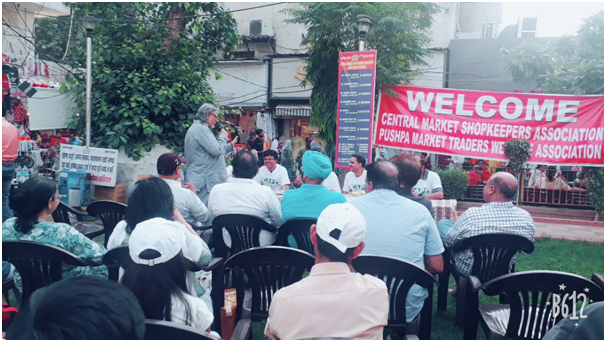
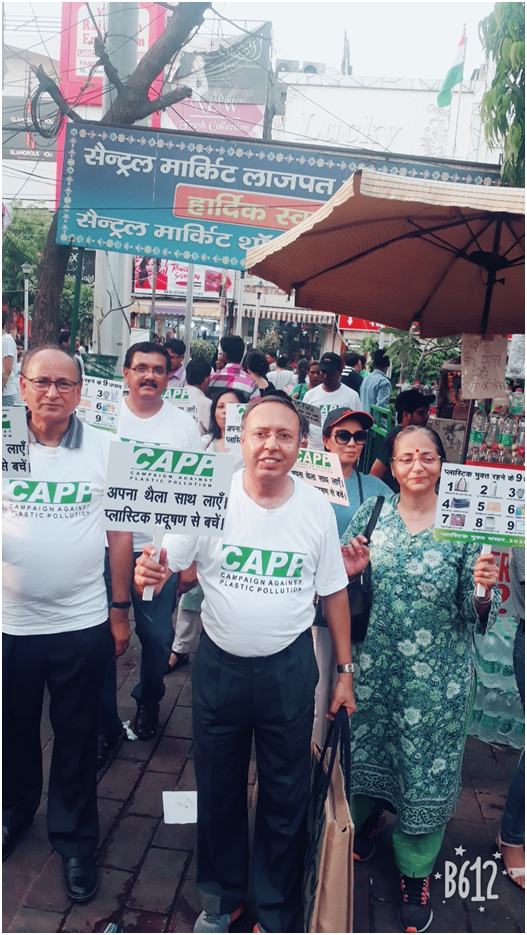
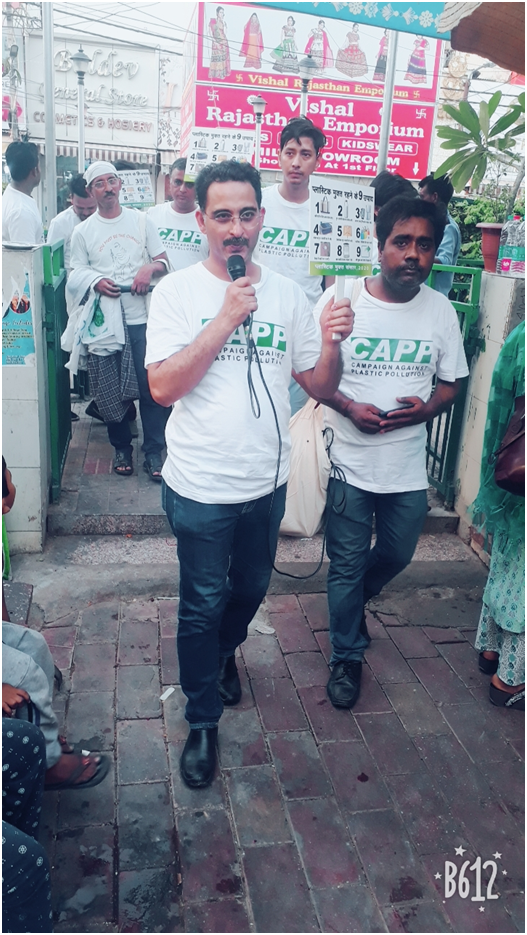
Founder-Director of F-CAPP Shri Anoop Kumar Srivastava visited the office of Kanpur Municipal Corporation (KMC) on 13th June 2019 and met Smt. Pramila Pandey, Mayor and concerned officials. Discussed the possibility of partnership between the Foundation for Campaign Against Plastic Pollution (F-CAPP) and KMC to launch the campaign against plastic pollution in Kanpur. Discussions shall be taken forward.
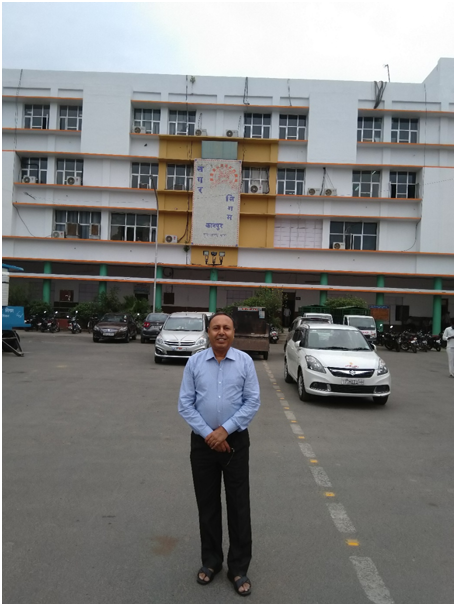
Anew trend was introduced prior to planned road show at Chittaranjan Park (CR Park) market, Delhi and that is, involvement of local community in our campaign against plastic pollution. Contact was established with CR Park Green Community Initiative (GCI), which is a group people of Chittaranjan Park bound by a common desire to protect the environment and make its locality green and clean. Discussions were held with the office bearers of GCI who were very excited about the prospect of their participation in our campaign against plastic pollution as our partner. It was decided to involve children of age group 12-18 years and to organise a Sensitisation Workshop for them as a first step. The members of F-CAPP made a PowerPoint presentation to the gathering of children on 16th June, 2019.
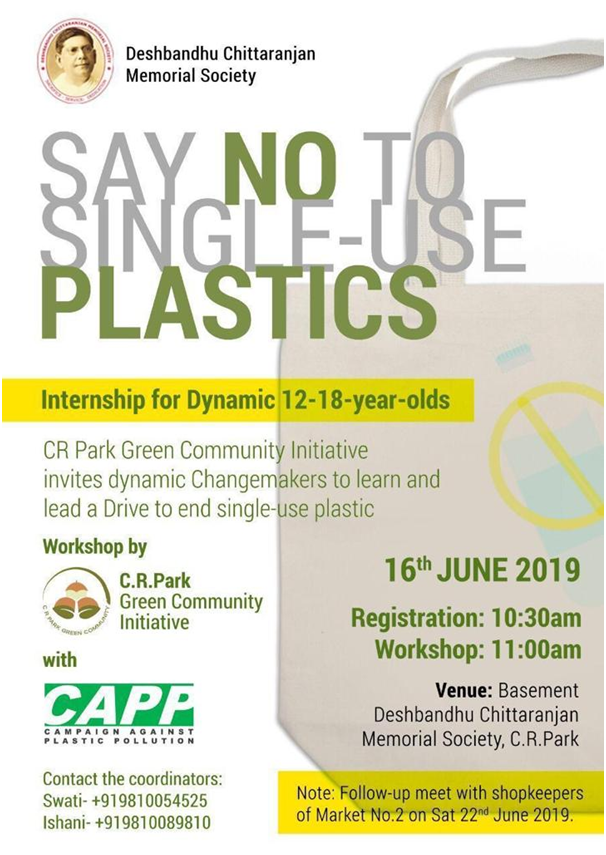
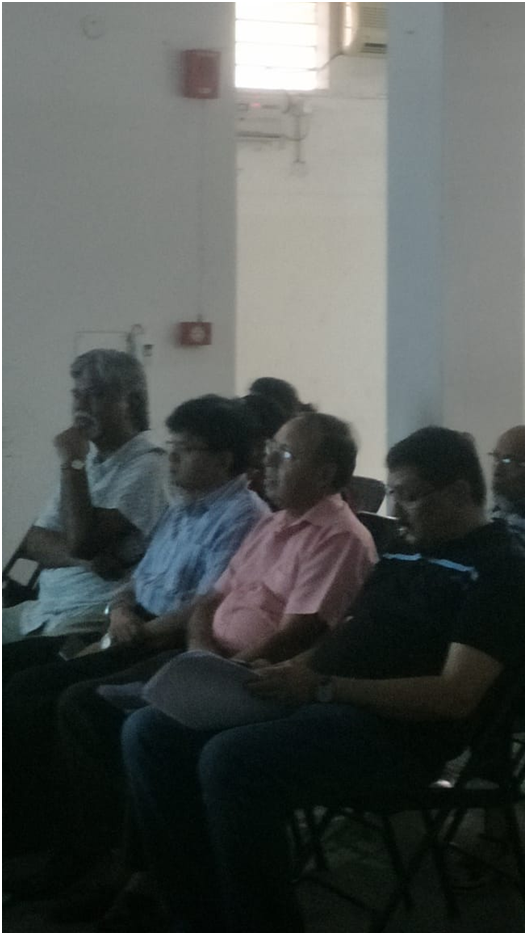
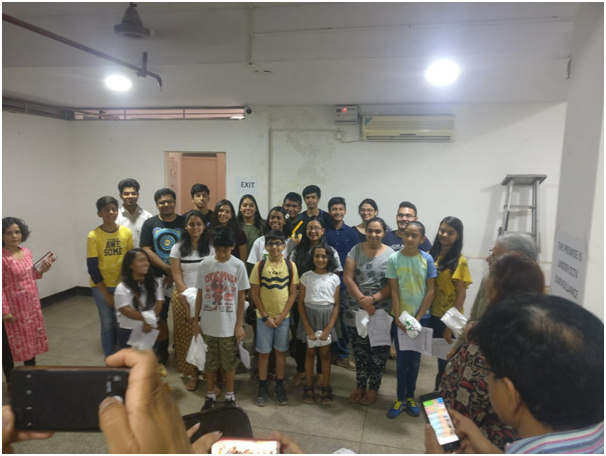

As stated earlier, Green Community Initiative, Chittaranjan Park organised a workshop in collaboration with Foundation for Campaign Against Plastic Pollution (F-CAPP) from 16th June, 2019 to 21st June 2019. On the first day, i.e. the 16th June, 2019, the participating children from 12 to 18 years in age were sensitised by F-CAPP about the harms of plastic pollution. This workshop was followed up by a survey of market behaviour with reference to use and abuse of plastics conducted by kids, teens and youth in Chittaranjan Park communities. The findings of the survey were presented by the participating children on 30th June, 2019. Subsequently, on 6th July 2019, a road show was scheduled for Chittaranjan Park Market # 2. This roadshow was meant for creating awareness among the shopkeepers as well as shoppers in Chittaranjan Park Market # 2. Prior to its commencement, Green Community Initiative members assembled in Netaji Subhash Chandra Bose Park at 6.00 pm and greetings were exchanged in an atmosphere of goodwill with F-CAPP representatives. With banners around the place, the park gave a festive look. Soon after the children and their parents arrived, Shri Anoop Kumar Srivastava welcomed all present and gave a brief account of the activities of the Foundation. He also emphasised the need to sensitise people about the need to curb plastic pollution by drastically reducing the use of single-use plastics. After the initial speeches, a certificate distributing ceremony was held. Children posed happily for receiving certificates, enjoying the fruits of hard work put in by them in doing the survey. Thereafter, the roadshow began with great pomp and show in an electrified atmosphere with chants of slogans on public address system on harms of use of plastics. Ms Chandralekha enthusiastically in Bangla dialect put the message over the mike across to shoppers and shopkeepers. She was able to convey the alternative to packaging fish in leaves instead of plastic wrappers. Mr. Naushad Ahmed Khan from F-CAPP sensitised the gatherings. Ms. Diki Bhutia educated children and their parents about the e-bricks preparation and use. Having deliberated upon the issue of plastic pollution, the roadshow was drawn to a close with distribution of beautifully stitched cloth bags free of cost to both shopkeepers as well as shoppers at their request. The assembly dispersed after the customary thanksgiving and announcing the date for next roadshow in Laxmi Nagar. The Green Community Initiative members assured that they will definitely be participating in that event too gladly.
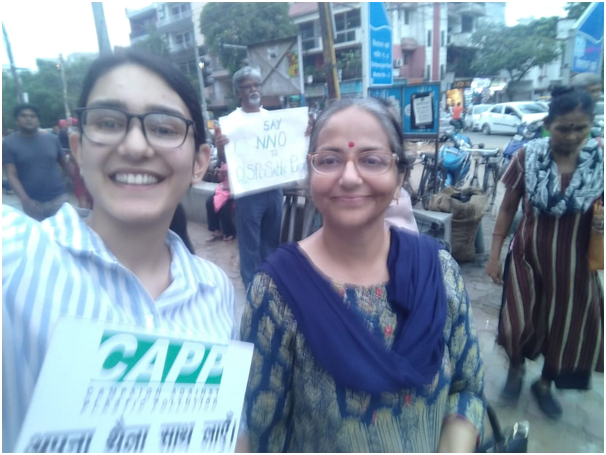
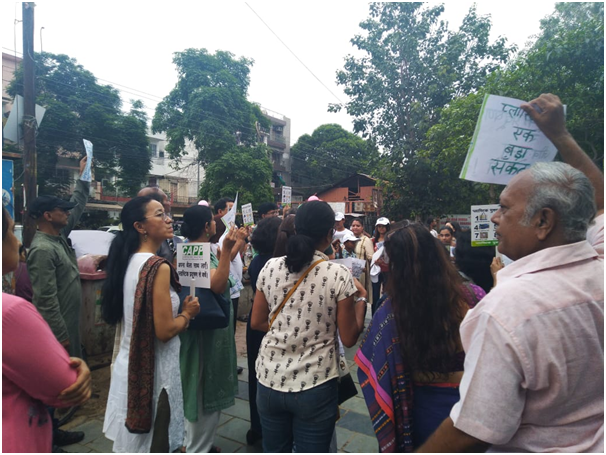
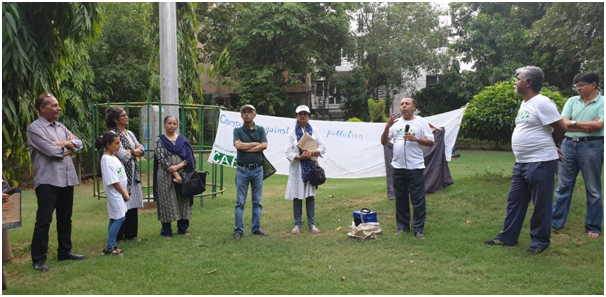
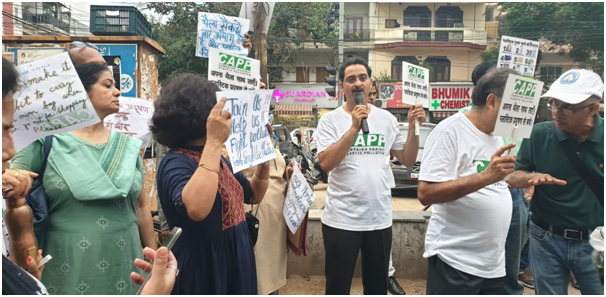
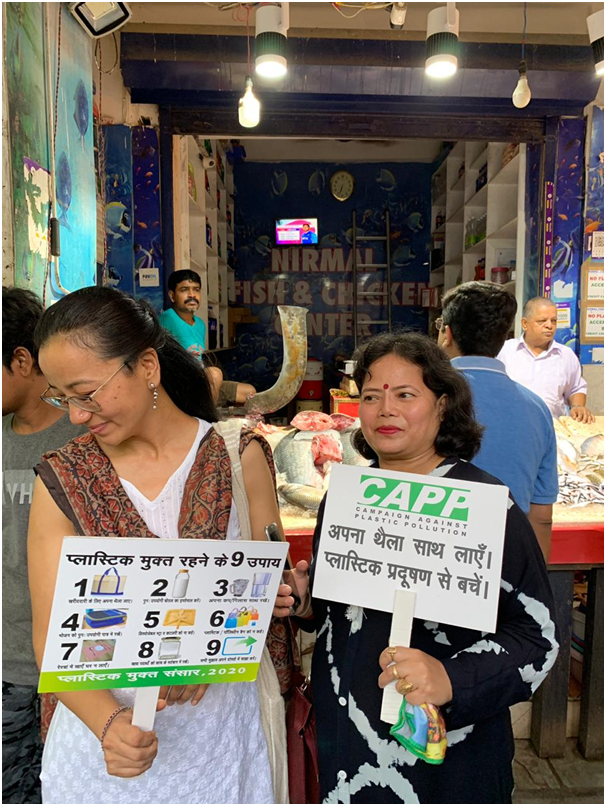

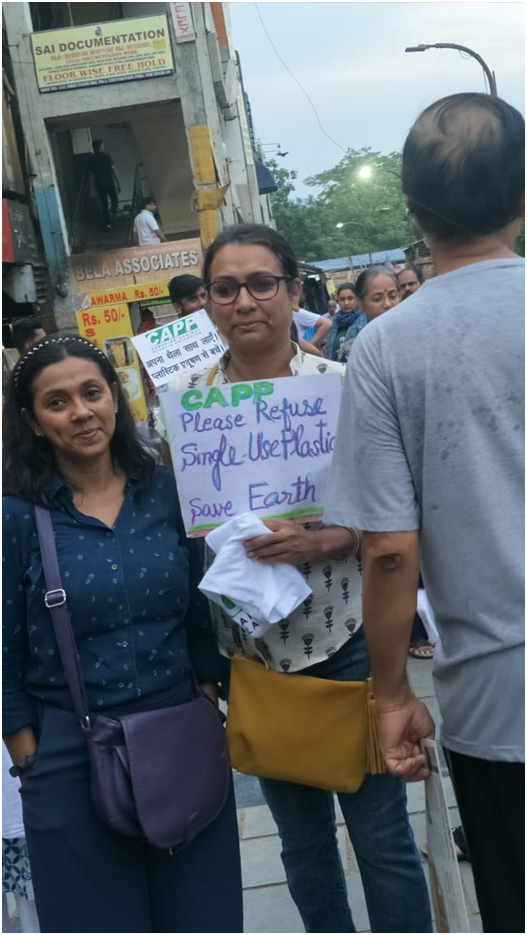




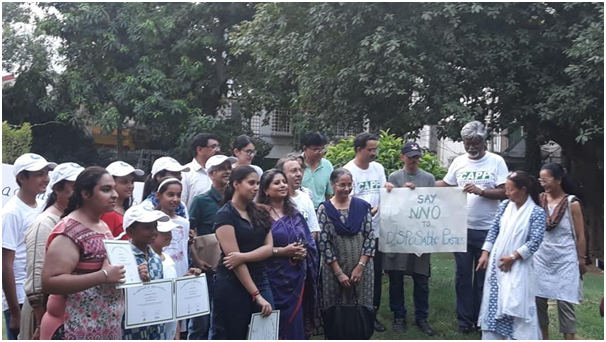
On Saturday, the 20th July, 2019, F-CAPP in collaboration with Joint Action Committee, Lalita Park Vikas Samiti, Residents Welfare Association, Vishwakarma Park, Residents Welfare Association, Laxmi Nagar “D†Block Sudhar Samiti, Garhwali Mohalla Resident Welfare Association, Kalyankari Sudhar Samiti and other Residents Welfare Associations of Laxmi Nagar organised a massive road show against “SINGLE-USE PLASTICS POLLUTION†in Laxmi Nagar Market area starting from Laxmi Nagar Metro Station and concluding at DDA Lalita Park. The road show covered Vijay Chowk, Sabzi Mandi, M-Block, J &K Block, Lalita Park, H & I Block in Laxmi Nagar. The enthusiasm with which people took part in the road show is very reassuring and promises to reduce the plastic footprint in the society. Such initiatives will go a long way in bringing a change in people’s behaviour in reducing their use of single-use plastics which has emerged as a major contributor of plastic pollution in the country.
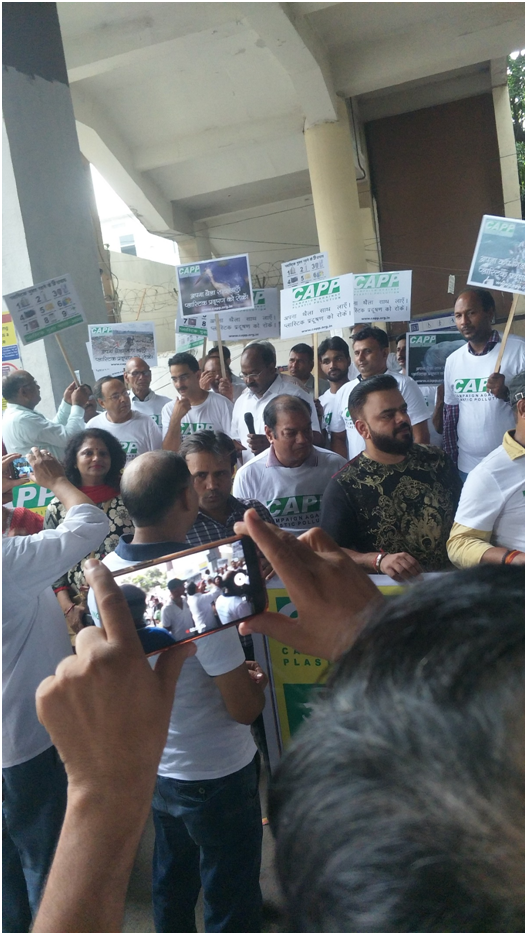
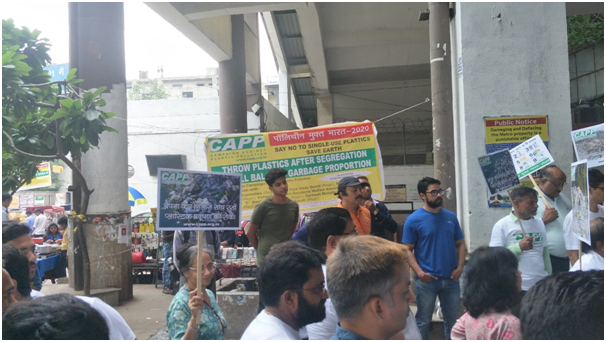
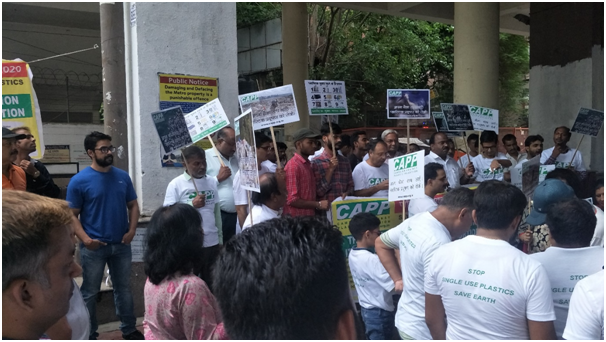
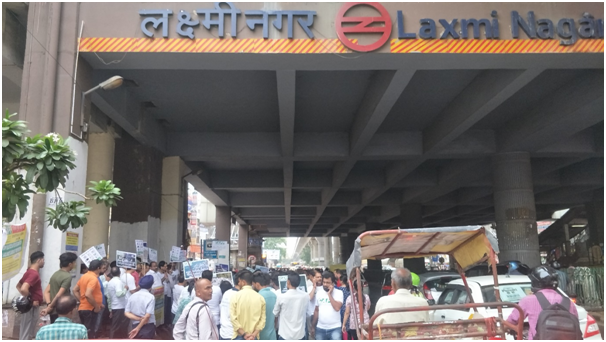
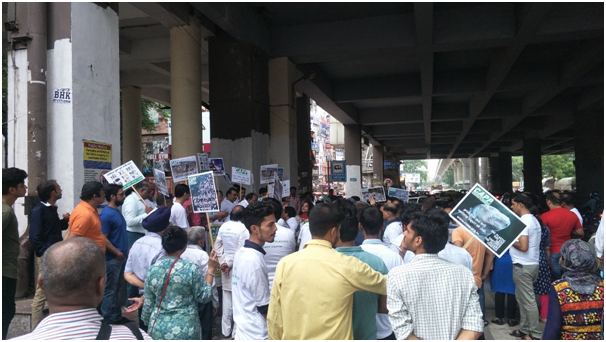
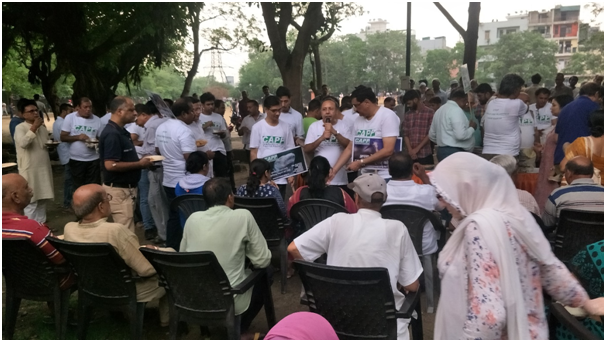
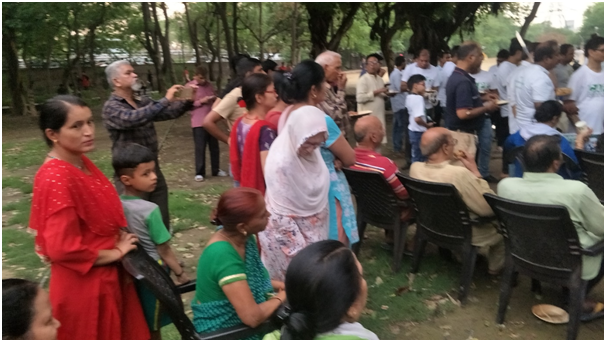
A road show-cum- public awareness and sensitization campaign was organised on 9.8.2019, at the Friday Weekly Haat held near St Thomas Church, Sector-2, R.K. Puram, New Delhi. It was attended by Shri Shrikant Kumar Ambastha, Mrs Mahima Ambastha, Shri N.C. Mishra, Shri R.N. Sharma, members of FCAPP, and about 15 volunteers who participated with slogans, banners, placards etc. The weekly market has vegetables and food vendors on the pavement and is visited by residents of R.K. Puram Govt. Quarters, nearby Safdarjung Enclave, and Mohammedpur Village. The campaign started at about 6 pm and the one km stretch from St Thomas Church to the FRRO office T-junction was covered to and fro, to sensitize the shopkeepers and buyers on both sides, for more than one hour. Members and volunteers canvassed with buyers to shun polybags and use jute/cloth bags for carrying purchased items, especially fruits and vegetables. Cloth bags were distributed to buyers particularly working-class women, who make regular purchases and are used to polybags.
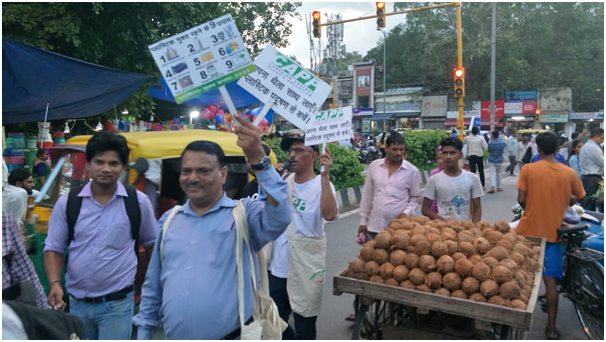
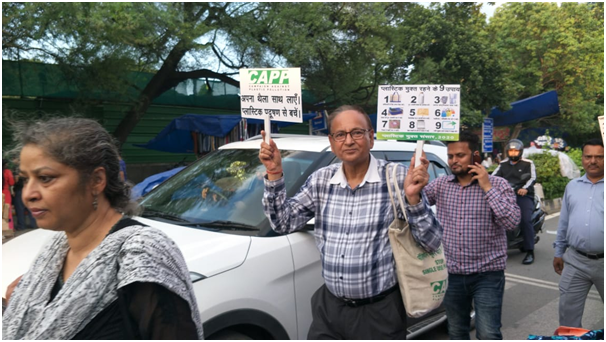
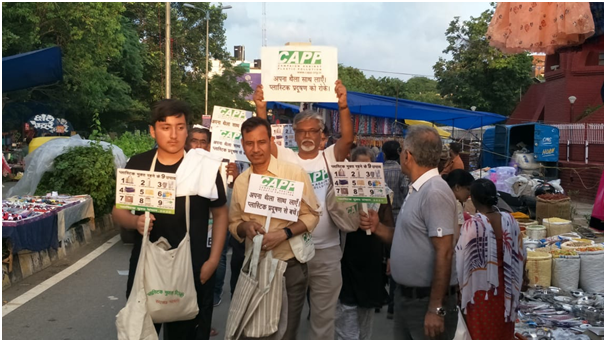
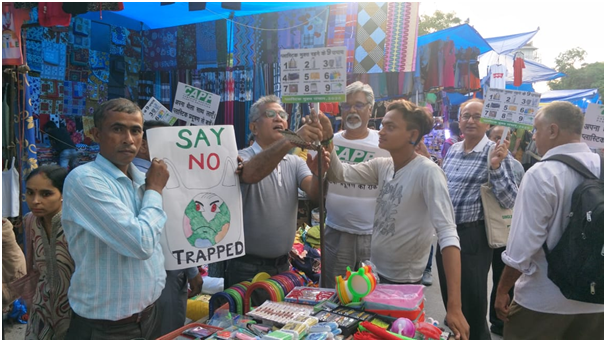


A road show was organized by F-CAPP in collaboration with the Members of Rotaract Club of Galgotias Educational Institution, NOIDA at Sector 18, NOIDA on 31st August, 2019. The participants were mainly Engineering Students. The State Government of Uttar Pradesh also sent a team of officials for the road-show which underlines the commitment of the State Government to implement single-use plastics ban in the right spirit. Founder Director, F-CAPP, Shri Anoop Kumar Srivastava welcomed the students, the officials and other participants. In his address, he drew attention to the adverse global impact of single-use plastics on environment and human health. The road-show began with an oath “To eradicate pollution caused by single-use plastics, to uphold the preamble of Foundation for Campaign Against Plastic Pollution, and endeavour to spread the word in the neighbourhood, to make the environment clean for the mankind, posterity and all creatures living on the earthâ€. This oath was administered to the participants by Shri Anoop Kumar Srivastava, Shri Naushad Ahmed Khan, Shri Shrikant Kumar Ambastha, Smt. Uma Srivastava, Smt. Mahima Ambastha, and Shri Ravinder Nath Sharma of F-CAPP. The program received very active support from Shri Anoop Kumar Srivastava and Shri Shrikant Ambastha, who encouraged the participants offering them T-shirts with the message “Stop single-use plastics†and cloth bags as an alternative to polythene bags. The Road-show was led by Advocate Naushad Ahmed Khan, Chief Campaigner, who interacted with the general public, the shopkeepers, managers of the Food Outlets and various other persons from different walks of life, taking commitment from them not to use single-use plastics. They were sensitized about the ill effects of plastic pollution. The officials of the State Government also expressed their views to curb the menace of single use plastics. It was an impressive gathering with college students taking an active part through Nukkad Natak and singing, which drew a lot of public attention and were great value addition to the road-show. The energy, enthusiasm and commitment shown by the students was commendable and F-CAPP expressed gratitude for their active participation and continued support in future programs of the Foundation.
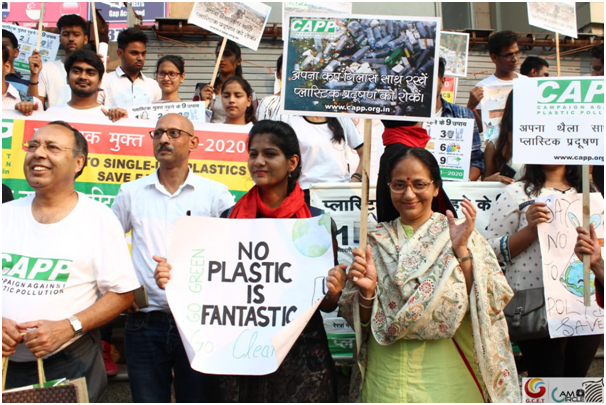

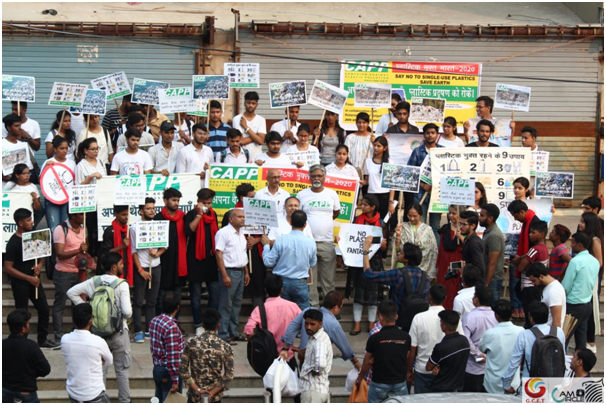
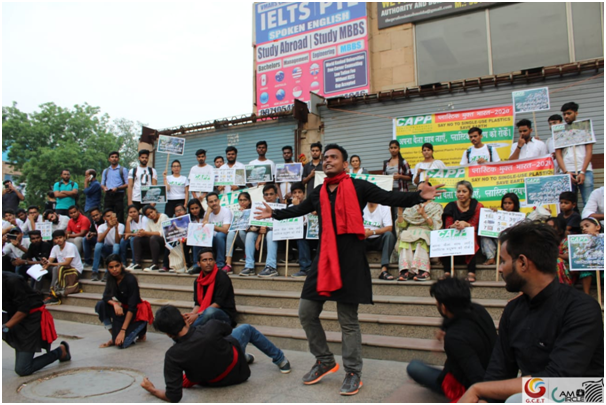
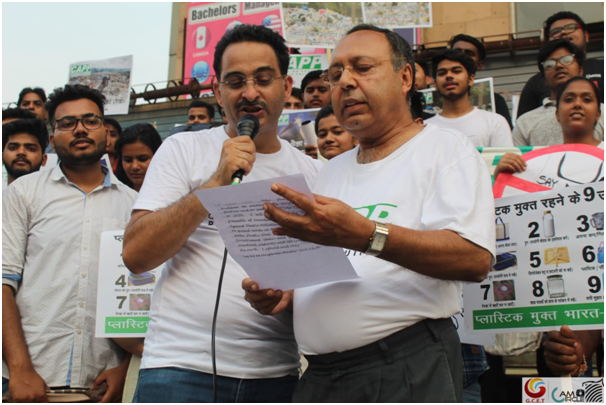
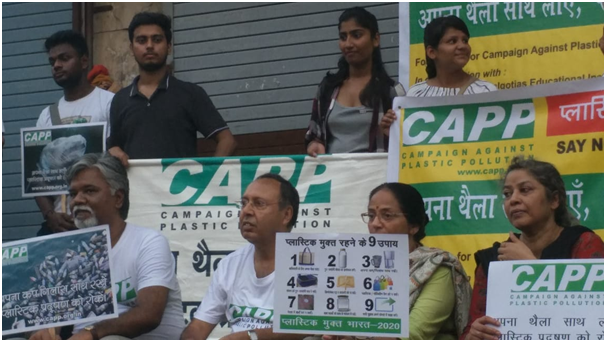
The management of Nizamuddin Railway Station, New Delhi (Northern Railway) invited Foundation for Campaign Against Plastic Pollution (F-CAPP), a pioneering organization working for eradicating plastic pollution, for a mega event on 17th September at the Railway Station for sensitising the staff and the passengers for elimination of single-use plastics, to give impetus to the call given by the Hon'ble Prime Minister on Independence day from Red Fort. The event was flagged of jointly by Mr. Anoop Kumar Srivastava (IAS retired), Founder Director, F-CAPP and the Divisional Officer, Shri Naveen Parshuramkar (ADRM/OP) and anchored by Advocate Naushad Ahmed Khan, member F-CAPP. In the event, Mr. R.N. Sharma, Member, F-CAPP conducted a Nukkad Natak portraying the sorry state of affairs due to the ill effects of use and effects of single use plastics on mankind, animals' life and the environment. This event was organized as a part of "Swachchatha hi Sewa, Pakhwada" being organised by Railways from 16.09.19 to 02.10.19. In the today's event, Shri Sunil Beniwal (Sr. DCM/C DLI) also participated. The Station Director Shri Sanjay Kumar Ghosh has done a commendable job by making the Nizamuddin Railway Station, single-use plastics free. The management of the Station has installed enough water dispensers, plastic bottle crushers and other equipment to boost the campaign. In the event, many school and college students, coolies, cleaning staff, locals, volunteers and other officers participated enthusiastically. The program ended by a vote of thanks given by Shri. Sanjay Kumar Ghosh, Station Director, Nizamuddin.
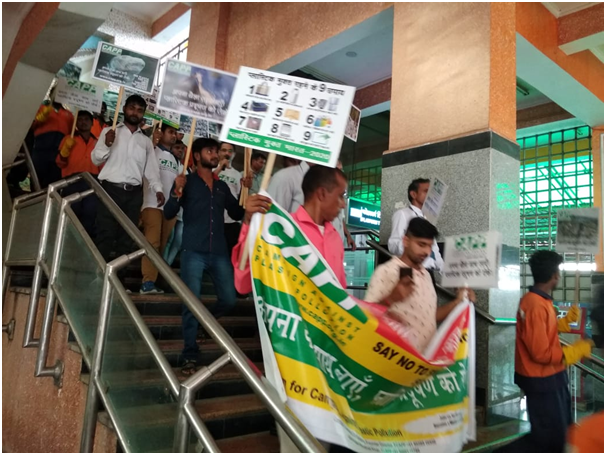
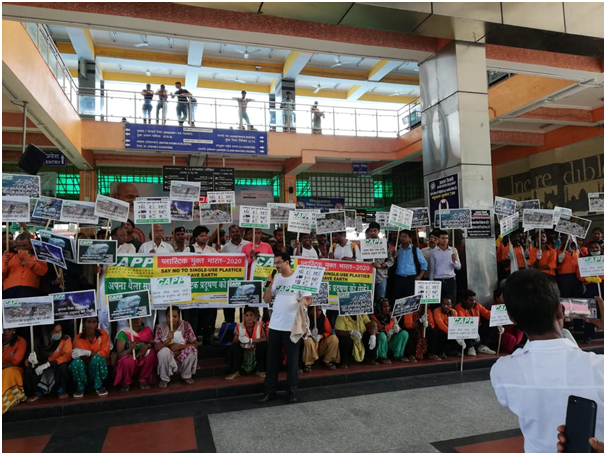

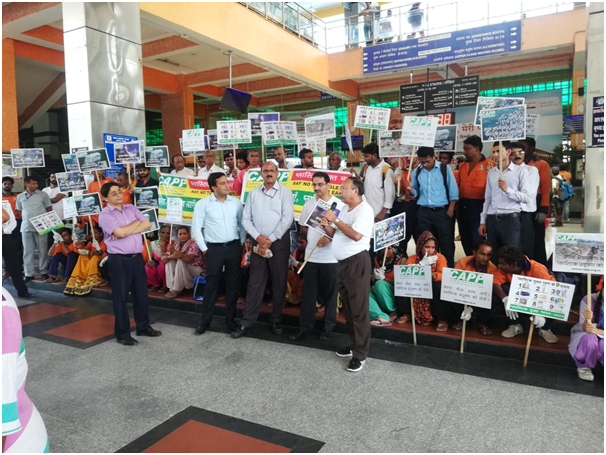

A campaign against plastic pollution was organised by “Foundation for Campaign Against Plastic Pollution†in collaboration with Rotaract Club of Galgotias Educational Institute at Connaught Place, New Delhi on 21 September (Saturday) from 4.30 PM to 6.00 PM. The aim was to draw attention of general public towards the havoc being played by indiscriminate use of single-use plastics on human health and animal life, both terrestrial and marine, as well as on environment. The campaign was inaugurated by Shri Anoop Kumar Srivastava, Founder-Director of “Foundation for Campaign Against Plastic Pollutionâ€.
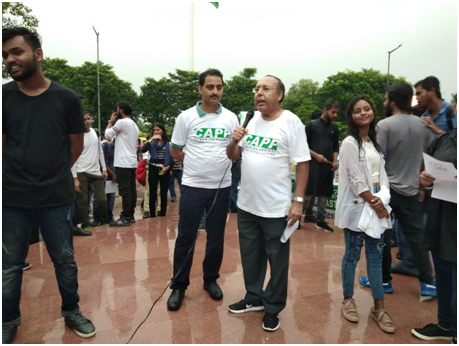
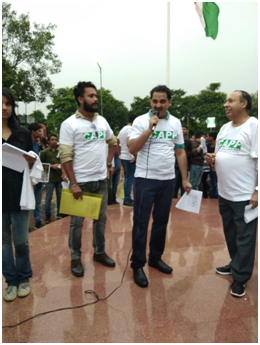
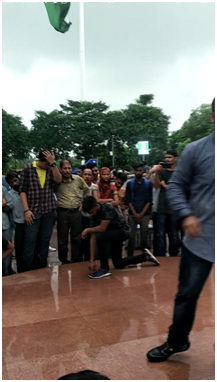
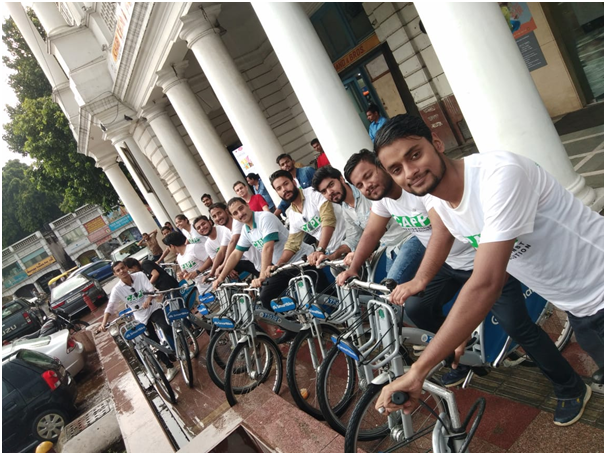
A campaign against plastic pollution in the form of a rally was organised by the “Foundation for Campaign Against Plastic Pollution (F-CAPP)†at New Delhi Railway Station on 2nd October 2019 (Wednesday) from 11.00 AM to 2.00 PM. The aim was to draw attention of general public towards the havoc being played by indiscriminate use of single-use plastics on human health and animal life (both terrestrial and marine), as well as on the environment. About 275 persons attended the programme including members and volunteers of F-CAPP and many students of Shri Aurbindo College, Delhi University. The campaign was inaugurated by Shri Anoop Kumar Srivastava, Founder-Director of “Foundation for Campaign Against Plastic Pollutionâ€. In his inaugural address, he emphasized that the situation caused by humongous plastic pollution in the environment is alarming and it needs to be tackled now on war footing. He told the gathering that globally there is about 7 to 8 billion tons of plastic litter in the landfills, dumps, or in the environment. About 8 million tonnes of plastic waste is being dumped into our oceans every year. If current consumption patterns and waste management practices do not improve, by 2050 there will be about 12 billion tons of plastic litter in landfills and the natural environment. This situation is very alarming and calls for action on war footing on the part of all of us – that is Governments, Businesses, Industry, Educational & Research Institutions, NGOs, Media and Individuals. The time has come to put an end to single-use plastics immediately, he added. Before the rally was flagged of, a pledge (attached) was administered by Shri Anoop Kumar Srivastava to all participants.
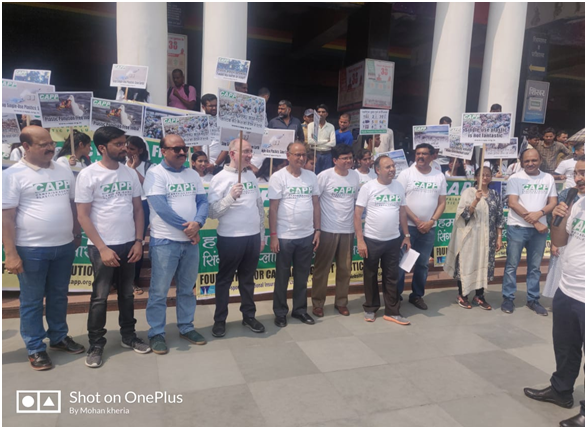
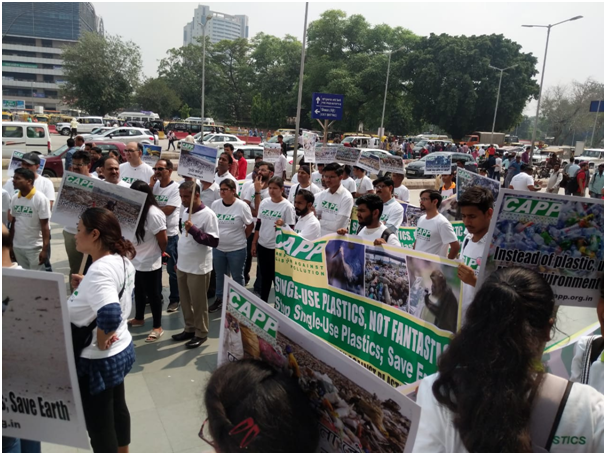
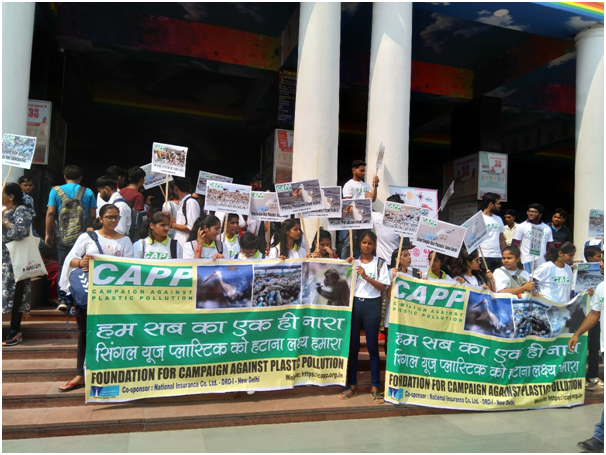
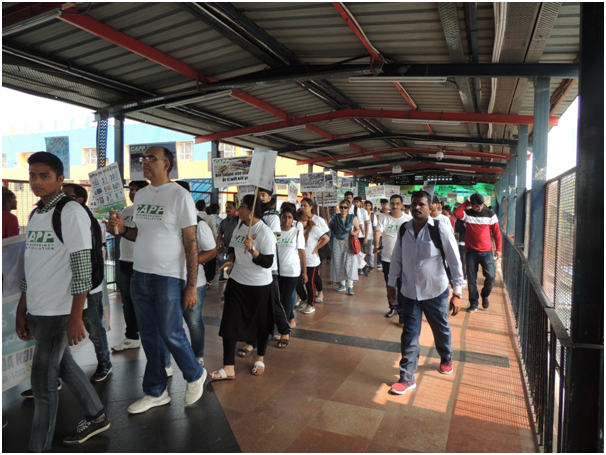
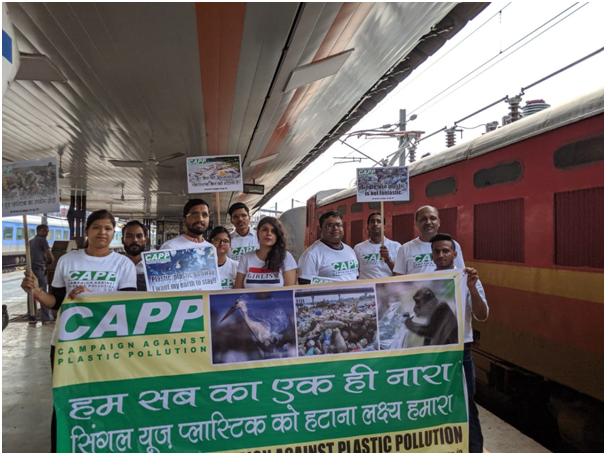
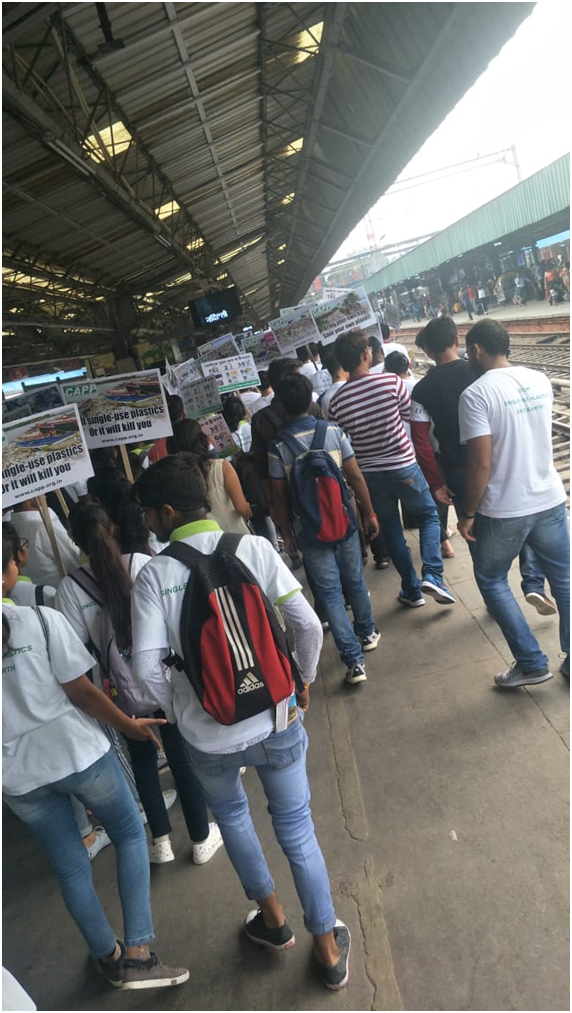
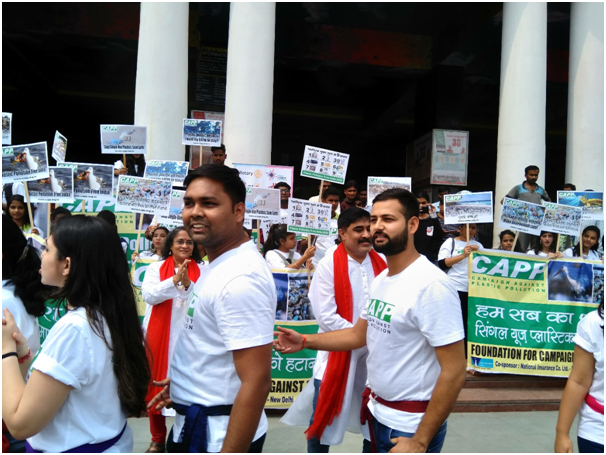
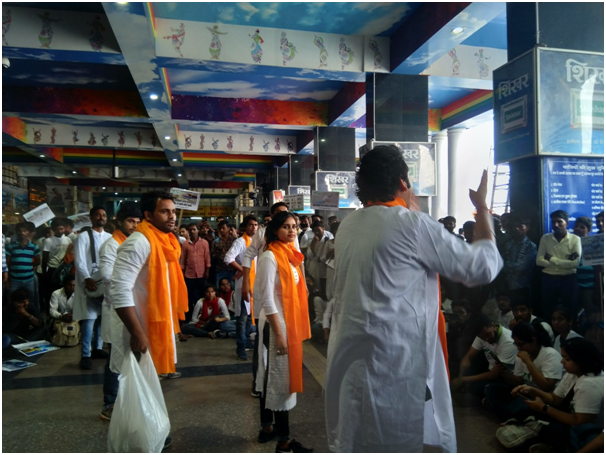
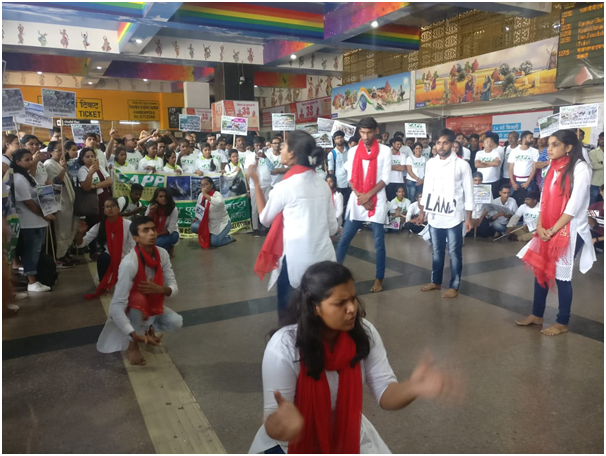
F-CAPP's campaign against plastic pollution was further extended to Lucknow on 2nd October, 2019. A group of 15 committed persons led by Shri Sujeet Kumar Srivastava held a road show at Bhoothnath market, Indra Nagar, Lucknow. They highlighted the adverse effects of using single-use plastics and appealed to the people to stop using single-use plastics. They also urged the customers to bring their own bags when they come for shopping to the market. The road show was received well by one and all and received widespread acclaim.
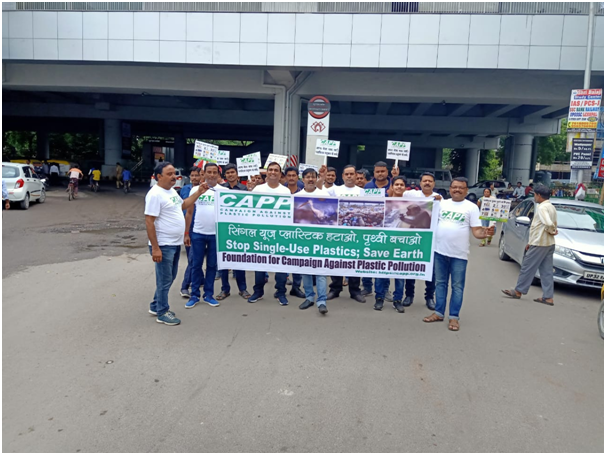
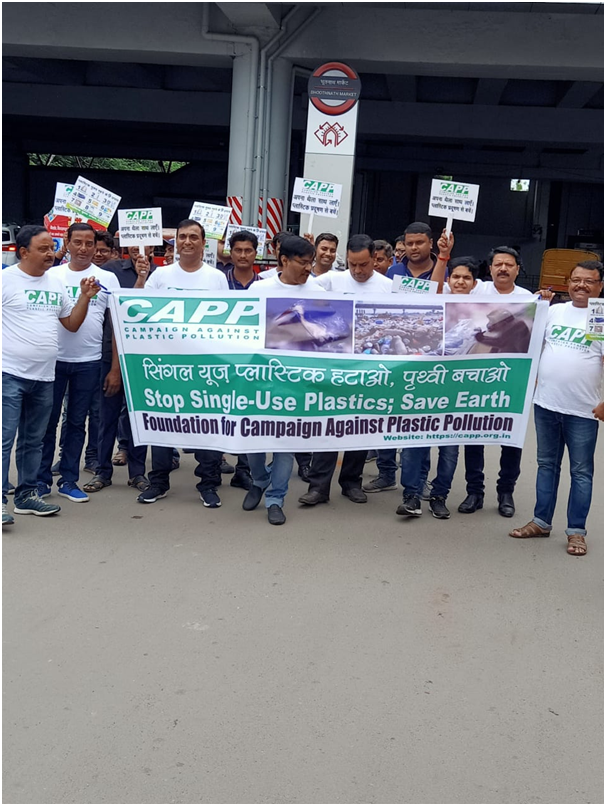
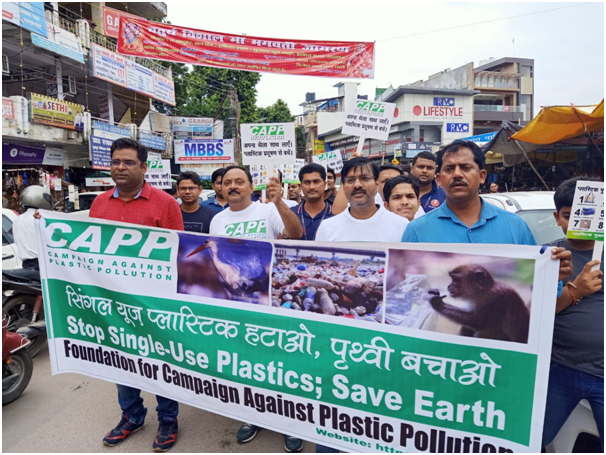
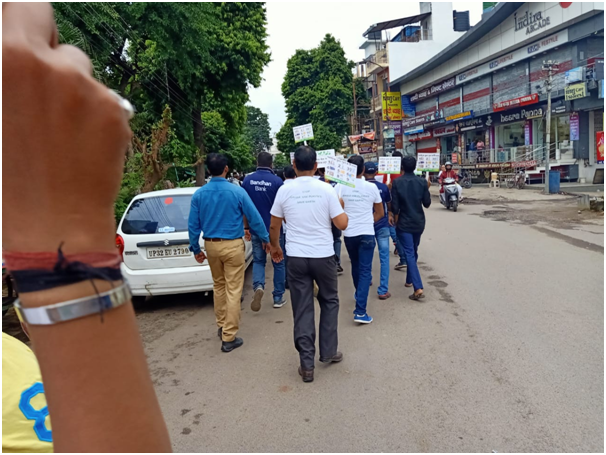
A stall was offered to F-CAPP Durga Pooja Committee of NTPC township, Sector 33, NOIDA (3rd October to 7th October, 2019) for campaigning against plastic pollution. The theme of Puja Committee this year was fighting Plastic pollution. Pooja Committee even served food (prasad) daily in plates and cutlery made from areca palm leaves although at a considerable cost to them. F-CAPP set up its stall with banners, artificial carcass of a goat, handouts and charts disseminating information about harms of plastic pollution. The kids also put in their energy when they gleefully took to the task of campaigning. They prepared charts and also signed pledge against single-use plastics. An F-CAPP member took to cleaning single-use plastics littered by few ignorant ones. Stall owners were visited and sensitised about the menace of plastic pollution, at the request of the Mr. Abhijit Mondal, Secretary. To name a few among visitors, who participated in pledge against single use plastics were Mrs. Anjul Agarwal, CSR, HR Depp NTPC, Mrs. Ravi Kala and Mrs. Shashi Kala -- twin sisters, Mr. Nikhil Sharma, Master Aryan, Baby Suhani, Master Vijay, and Ms. Kanika. The unstinted support from team of Mr. Abhijeet was greatly acknowledged. Bags and F-CAPP T-shirts were distributed to the spirited enthusiasts.
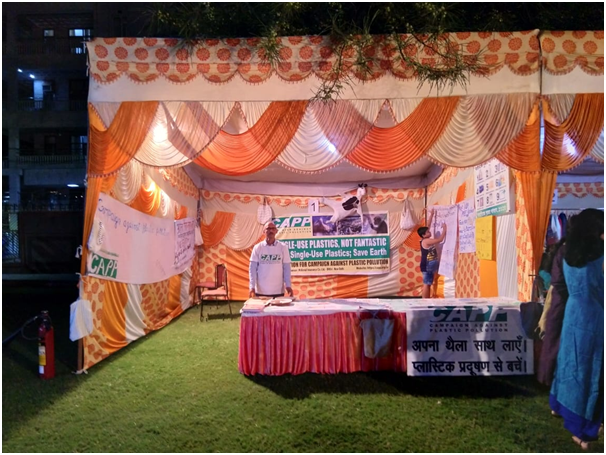

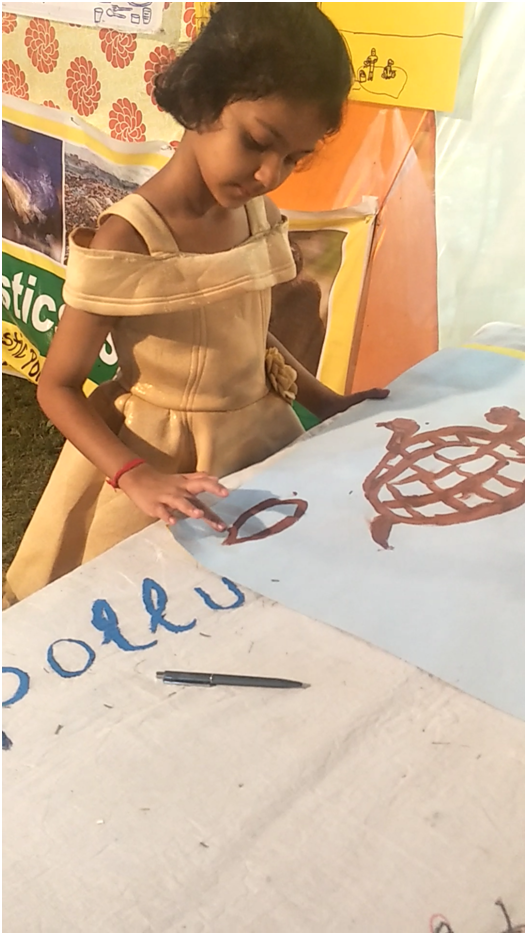
A stall at Diwali Mela in Airports Authority of India Officers Institute at Delhi Flying Club road, Safdarjung Airport was set up by F-CAPP on 12th October, 2019 to carry out its campaign against plastic pollution at no cost basis. Stall was decorated with banners, handouts and charts and an artificial carcass of goat for creating awareness amongst visiting guests at the Diwali Mela. Apart from this, AAIOI also permitted two of F-CAPP's large sized banners at prominent space at the entrance. The focus remained on disseminating information about magnitude, dimensions and harms of plastic pollution. There were announcements made several times about CAPP stall on the public address system. This drew interest of visitors. The anchor came personally with distinguished Chairperson of 'Kalyaanmayi' a welfare organisation of Airports Authority of India. The unstinted support from Airports Authority of India Officers Institute was greatly acknowledged. Kids and elderly, all were invited to come and see the displays. The response to pledge was great. As there was a huge footfall, it generated lot of interest in knowing about alternatives to single use plastics, especially there were trade enquiries about bulk supply of bags in this new era where cloth/jute bags are bound to flood the markets soon.
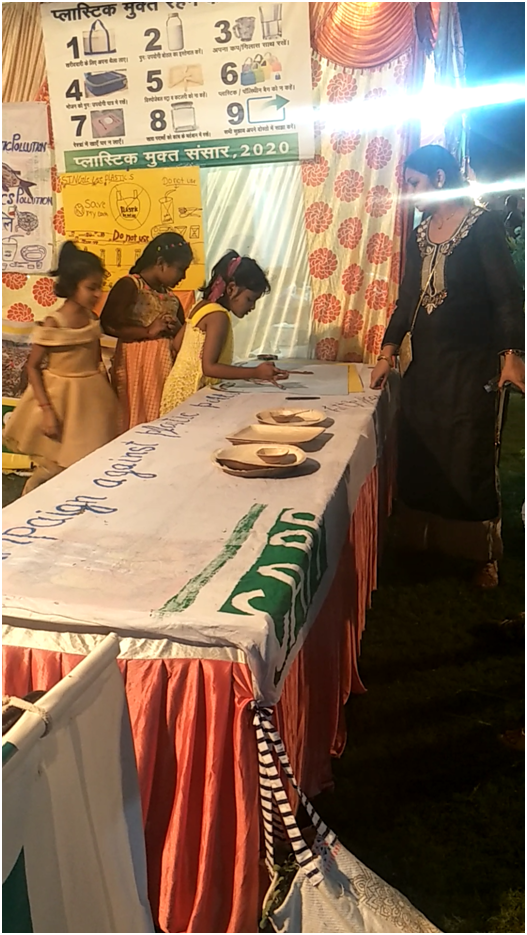
Eight members of the F-CAPP picked up plastic waste from Nehru Park, Chanakyapuri, New Delhi on 29 th December, 2019 afternoon. The aim of the event was to draw the attention of visiting public towards the menace caused by littering of plastic waste and to inculcate in them the concern for the environment. As there were very few hands, the members present on the spot decided to carry out a big clean up of Nehru Park on 2 nd February, 2020 by mobilising a large number of volunteers.
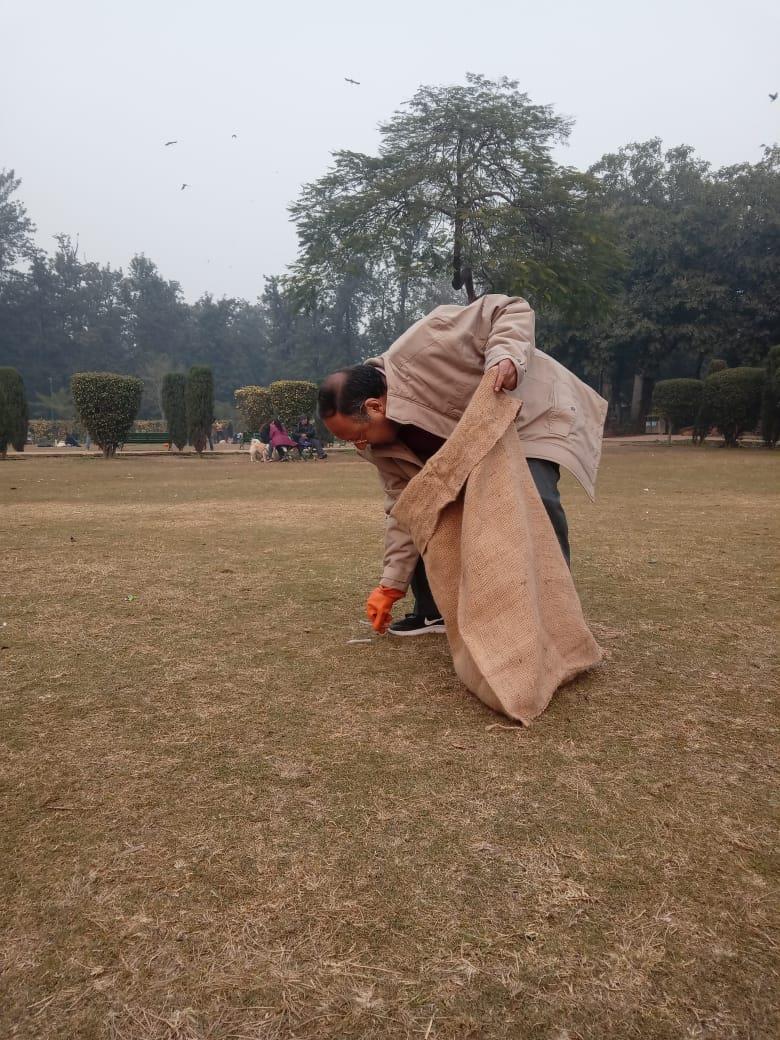
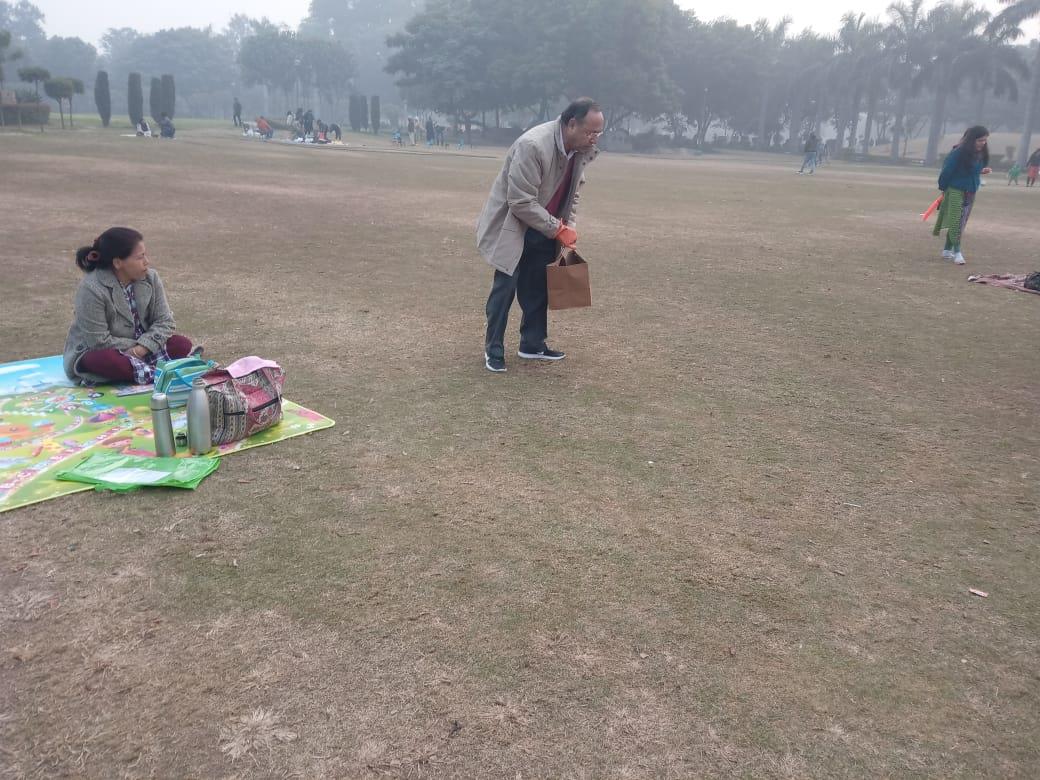
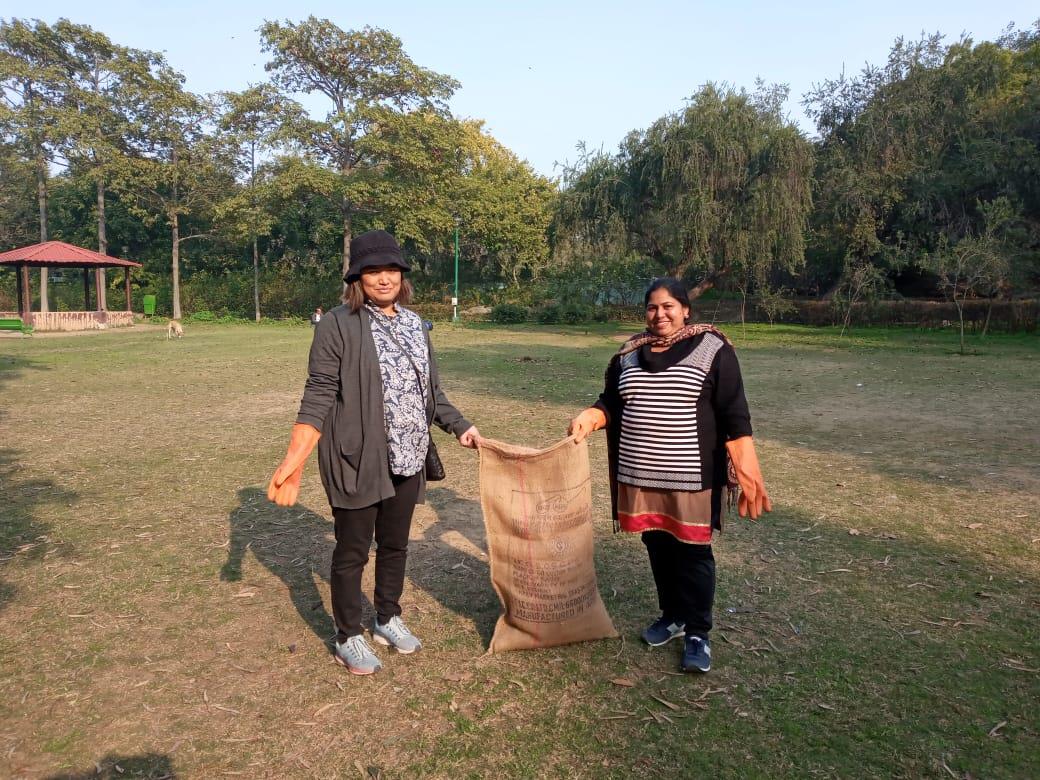

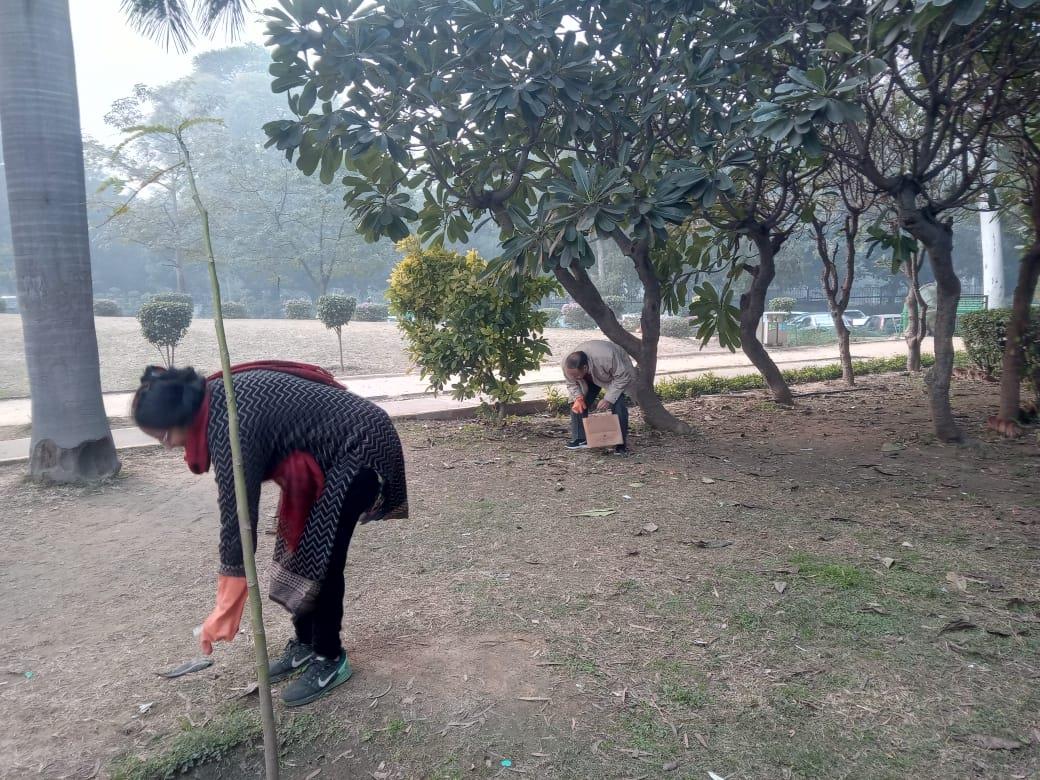
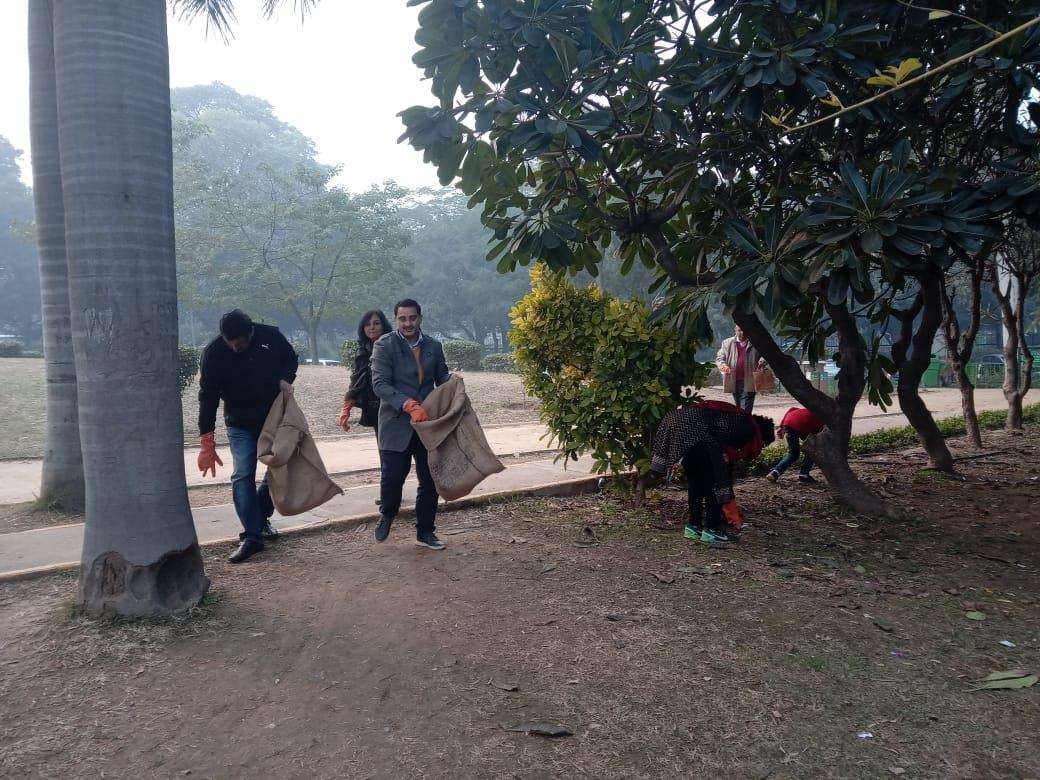
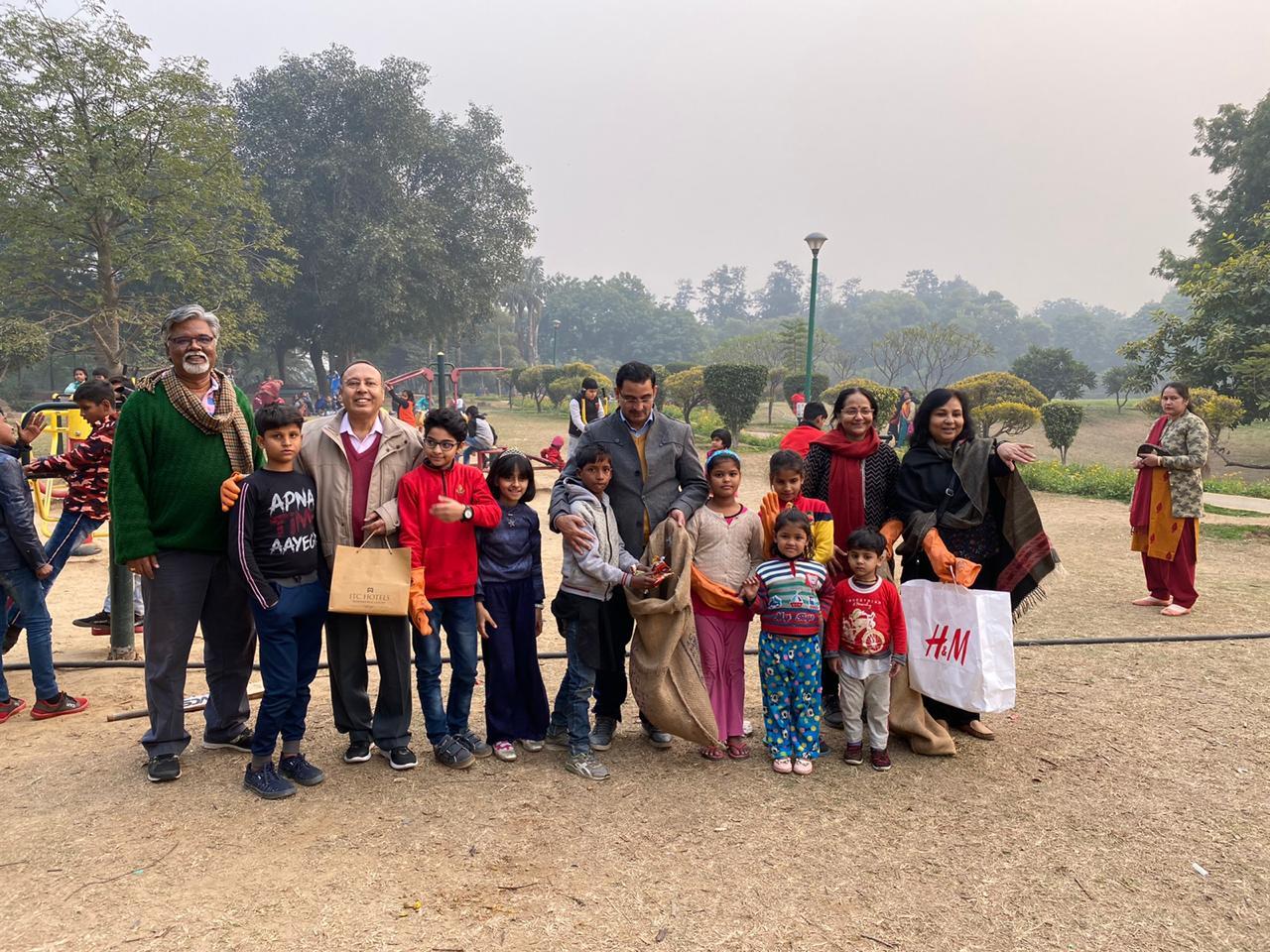
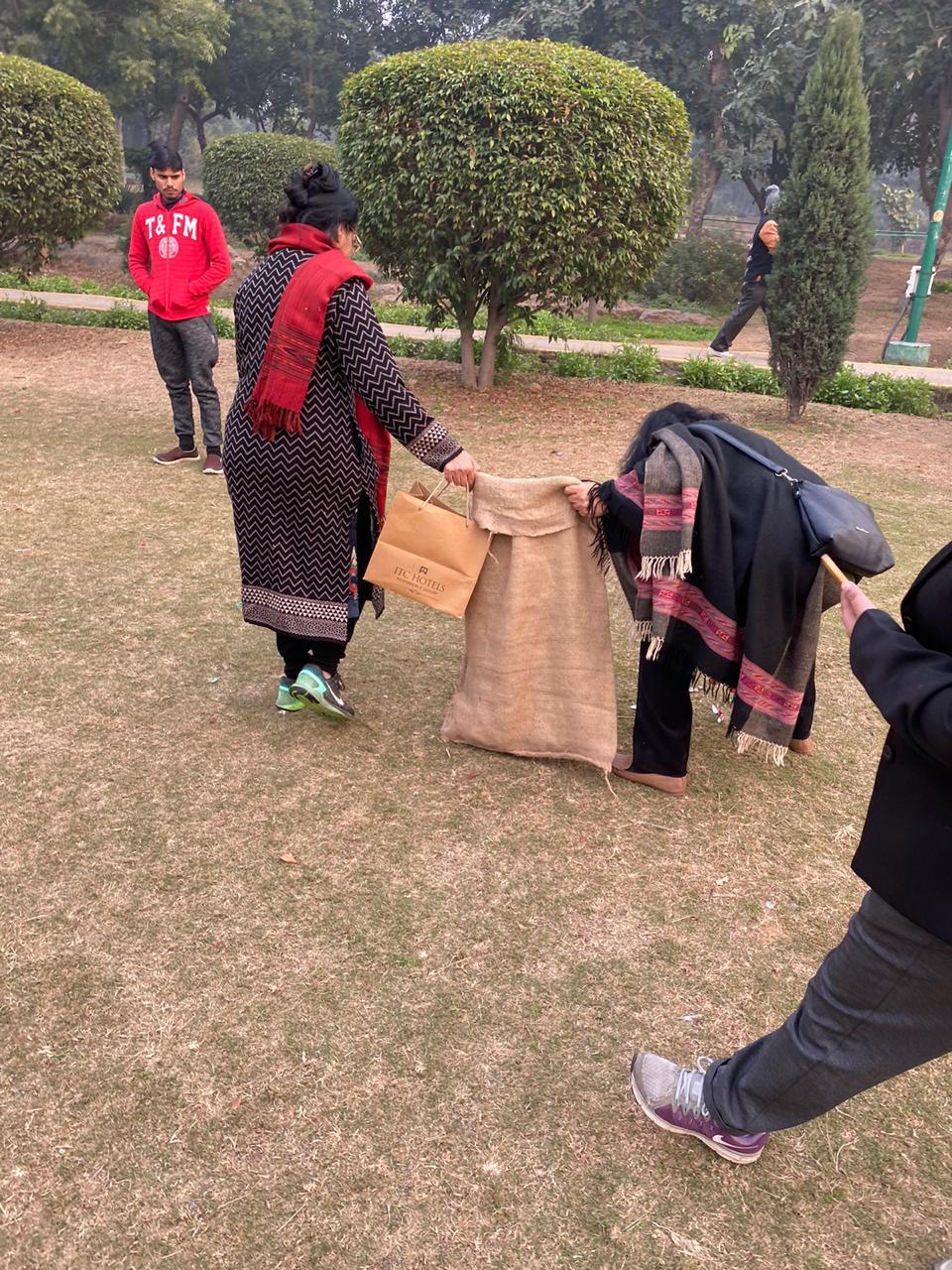
Founder-Director of F-CAPP Shri Anoop Kumar Srivastava participated in Mark-up Forum
Impact Talk 2020 on “Plastic waste: A threat or an opportunity†on 18 th January, 2020 at
Sector 6, Noida. He gave a special address during inaugural session (copy annexed). He also
moderated a panel discussion on “Biodegradable plastic is nothing but a shamâ€.
Annexure
Plastic Waste – A threat or an opportunity - Anoop Kumar Srivastava
The question whether the plastic waste is a threat or an opportunity has no straight answer. The answer is yes and no. It depends on how we manage it. Simply put, if we don’t manage it well, it is a threat. But it is an opportunity if we manage it well. In order to manage it well, the foremost requirement is to reduce the quantity of plastic waste being generated as the present level is too high for its proper handling.
Solid waste management has always been challenging for the Governments, municipal authorities, industry, businesses, neighbourhoods and individuals. Of this, plastic waste management has been even more challenging because of several factors such as multiplicity of variety of plastic, its non biodegradability, multilayer plastic being non-recyclable, etc. But we have to meet this challenge at any cost.
The positive contribution of plastics in our lives cannot be denied. Thanks to plastics, countless lives have been saved in the health sector. The growth of clean energy from wind turbines and solar panels has been greatly facilitated. Safe food storage has been revolutionized. These are some examples but the list is endless.
However, plastics have become a threat ever since we have started overusing plastics in our day-to- day lives, through the emergence of single-use plastics, or in other words, disposable plastics. The very low cost of plastic, its light weight and ease of production has made it ubiquitous, resulting in one of our greatest environmental challenges. By inventing single-use plastics, we have evolved a throw away culture, generating too much plastic waste. As a result, our oceans have become a dumping ground, choking marine life and transforming some marine areas into a plastic soup. In cities around the world, plastic waste clogs drains, causing floods and breeding disease. Consumed by livestock, it also finds its way into the food chain.
I am sure all of you are aware of the magnitude of the humongous plastic pollution in the environment caused by indiscriminate use of single-use plastics. As per the June 2018 report of the UN Environment titled, ‘Single-use Plastics: A roadmap for sustainability’, there is at present around 7 billion tonnes of plastic litter in landfills, dumps or in the environment. If the current consumption pattern of single-use plastics does not change and the plastic waste management practices do not improve, then by 2050 there will be around 12 billion tonnes of plastic litter in landfills and the environment. By then, there will be more plastic than fish in the oceans. Due to consumption of plastic litter, we are losing around 100,000 marine animals and 10,00,000 sea birds every year. Obviously, we cannot afford to continue with this kind of catastrophe. This must stop. The use of single-use plastics has to be drastically reduced, restricting it to the essentials only. Majority of the single-use plastics must be phased out in the shortest possible time. On 15 th August, 2019, our Prime Minister had from the ramparts of red fort given a clarion call to get our country free of single-use plastics by 2022. Let all of us, that is, Central Government, State Governments, plastic industry, businesses, NGOs, all other stakeholders and individuals, stick to this deadline. Other nations too should follow similar time bound action as India as envisaged.
In order to cut down on consumption of single-use plastics and eventually to completely phase them out, we will need to change our habits too, which have set in over a period of time. Today, when we go for shopping, we go empty handed and do not carry a shopping bag along. We expect the shopkeeper to put the purchased items into a plastic carry bag. We have to change this habit. As individuals, whenever we go for shopping, we must carry a sturdy shopping bag made of cloth or jute or some such eco-friendly material but not paper. The plastic carry bags can certainly be dispensed with change of habit. Apart from plastic carry bags, other single-use plastics of high consumption are cups, plates, cutlery, glasses, containers, straws, stirrers and PET bottles. As for the cups, plates, cutlery, glasses, containers, and stirrers, we should switch over to ceramic or metal items which are reusable. We can easily live without straws, as we can sip our drink directly from the glass.
Apart from the abovementioned single-use plastics, there are some other single-use plastics, for which alternatives are not imminent. For example, plastic pouches, in which liquid milk is sold, seem inevitable at present juncture. Fortunately, these pouches are made of high-grade LDPE, which is recyclable. While research and innovation may bring eco-friendly alternatives in future, till such time it happens, a system should be in place to collect and recycle these pouches. Same system should be evolved for similar other single-use plastics, for which no alternatives are imminent, but are recyclable.
Plastic bottle is perhaps the most debatable item. Drinking water is sold in bottles made of Polyethylene Terephtalate (PET) throughout the world. Most soft drinks are also sold in PET bottles. These are very high consumption items. The world community should definitely reduce its consumption as the present level of its consumption makes it very difficult to recycle the entire waste created by PET bottles. The governments, businesses, institutions and all other organisations can easily stop using PET bottles and serve drinking water in glasses. PET bottles perhaps remain a necessity only for the tourists and pilgrims. In the long run, more water ATMs will need to be developed to cater to the tourists. PET bottle may not be identified as an item for banning, but our overall reduced requirement with our changed habits can be easily handled through Extended Producer Responsibility (EPR). In several developed and developing countries, the introduction of EPR and deposit-return schemes have proven effective in reducing littering from PET bottles while boosting the recycling sector. Fortunately, PET is recyclable. If PET bottle manufacturers may be persuaded to discharge their EPR, by introducing deposit-return schemes, all of the PET bottles produced can be recycled. For example, while selling water or soft drink in PET bottles, the seller may keep a deposit of reasonable amount which shall be refunded to the consumer when she/he brings back the empty bottle to the shop.
The most difficult single-use plastic item to handle is the Multi-layered Packaging (MLP). According to the Ministry of Environment, Forest & Climate Change, replacement technologies are still not available to the manufacturers of products, which use MLP. MLP which is non-recyclable or non- energy recoverable or with no alternate use are required to be phased out in two years’ time as per amended Rule 9(3) of the Plastic Waste Management Rules. The said rule was amended in March, 2018. Hence, this two year’s window will be over in March, 2020. From that time on no such MLP can be produced, which is non-recyclable, non-energy recoverable and has no alternate use. This must be adhered to. The MLP is generally burnt in cement kilns as fuel, or used in road construction or used for energy recovery. More research and innovation are needed to find eco-friendly alternatives to MLP.
Finally, I want to say that in our war against humongous plastic pollution in our environment, all of us– including Governments, Businesses, Institutions, Organisations including NGOs, Media and above all – the People – need to act in concert with complete clarity of mind, precise plan of action, and with a great sense of urgency. In short, the best strategy for handling single-use plastics hinge around three Rs – that is – Reduce, Reuse and Recycle.
*****
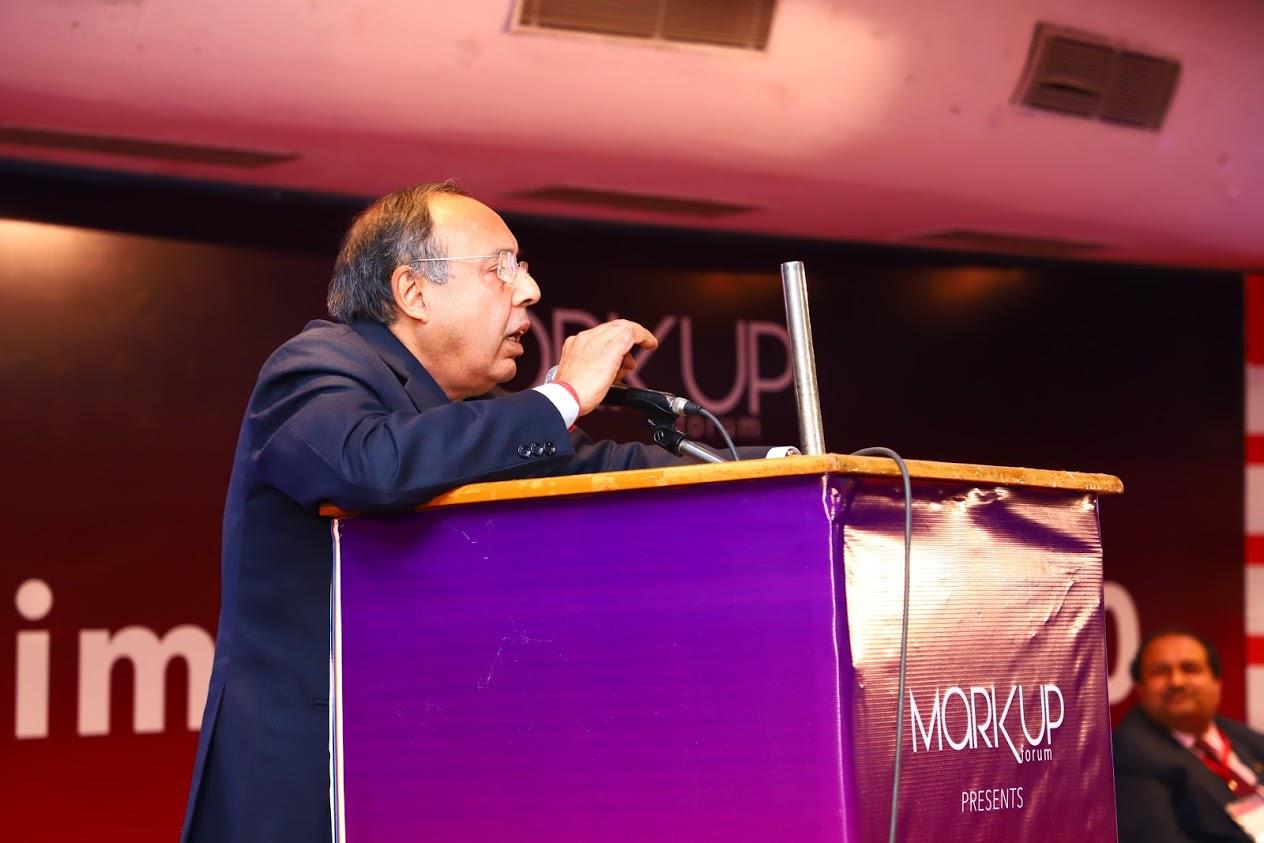
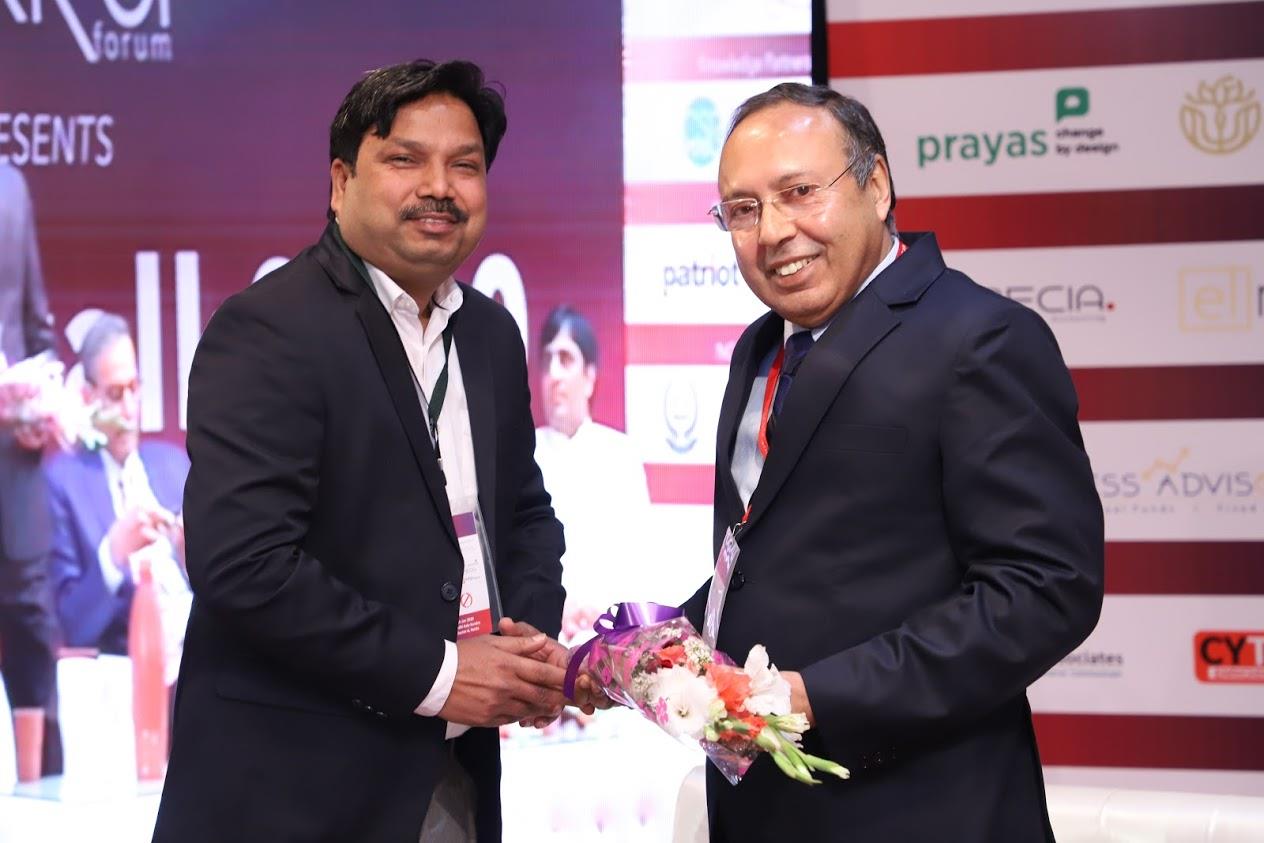
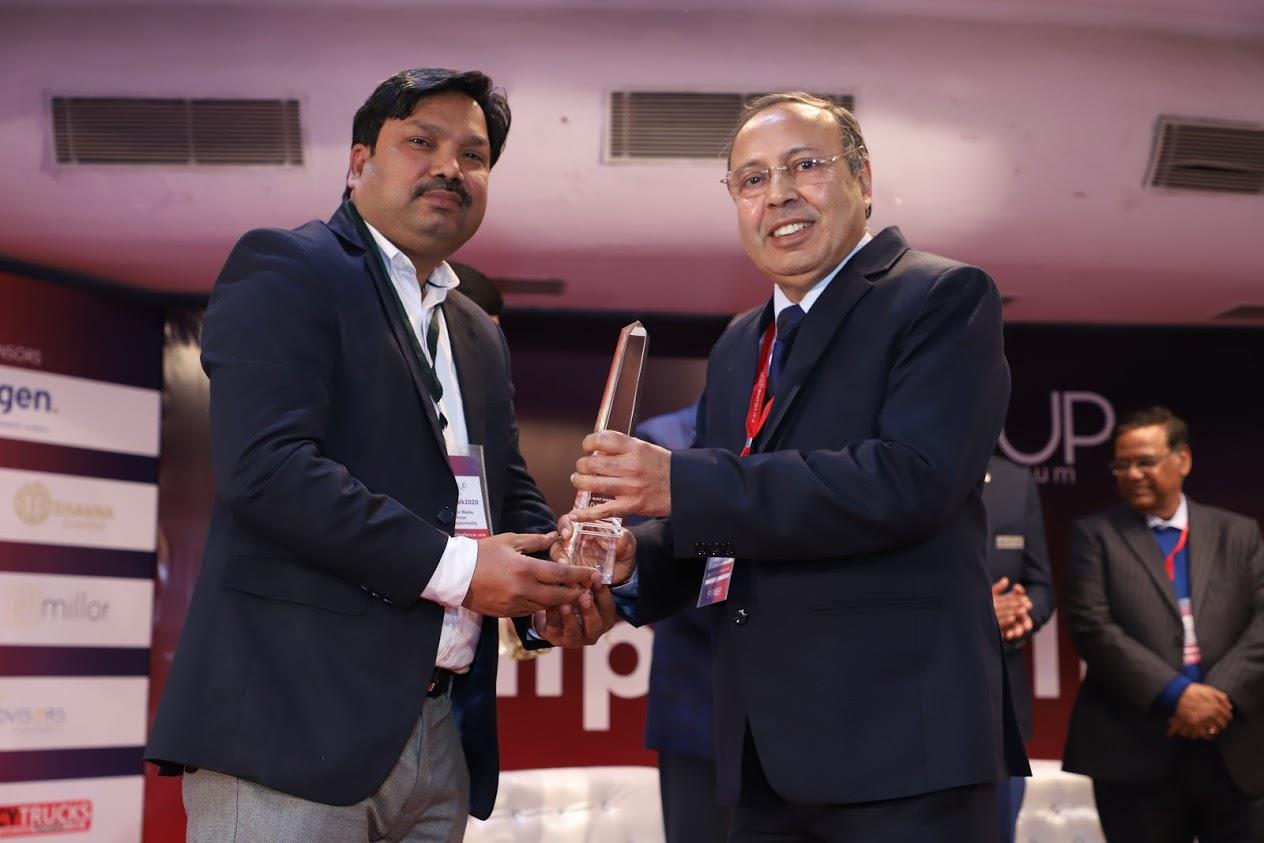
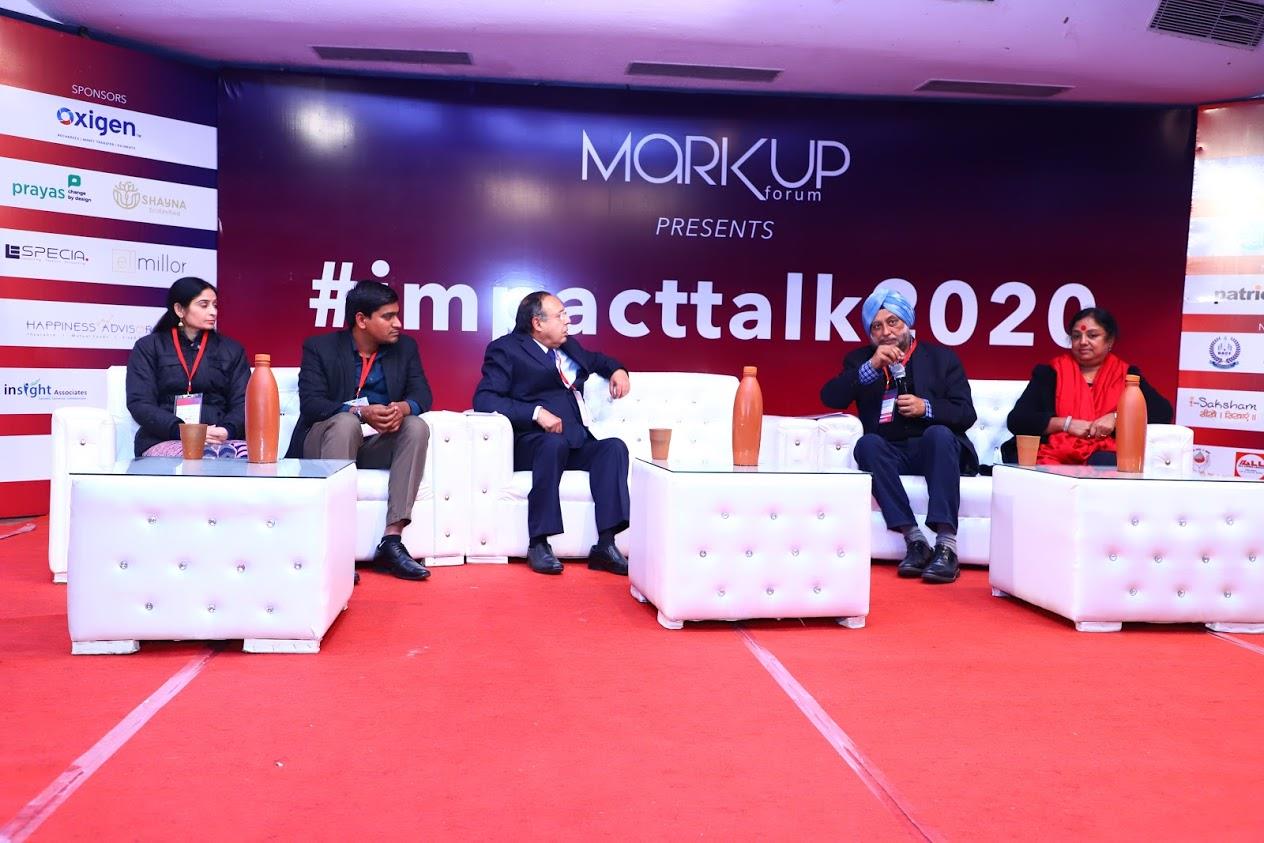
Members & volunteers of Foundation for Campaign Against Plastic Pollution participated in
the Cleaning Drive at Nehru Park, Chanakyapuri, New Delhi on 2 nd February, 2020. The
energy and enthusiasm of participants was very high while plogging. The aim was to draw
the attention of visiting public to the menace of plastic pollution and to demonstrate how
the indiscriminate use of single-use plastics and its irresponsible disposal pollute even the
most beautiful places that the nature has bestowed on us. It is the duty of all of us to keep
our environment clean and we should not think that it is the job of sweepers to clean the
litter. In fact, it is our duty not to litter places in the first place.
Following members and volunteers participated:
1. Shri Anoop Kumar Srivastava
2. Smt. Uma Srivastava
3. Shri Amitav
4. Smt. Lal Nunt Langi
5. Smt. Diki Bhutia
6. Shri Pushp Dant
7. Advocate Naushad Ahmed Khan
8. Shri Akhilesh Shrivastava
9. Shri Suraj Kumar Jha
10. Shri Sanjeev Kumar
11. Shri Thakur Singh Negi
12. Shri Arun
13. Shri Aadil Ansari
14. Shri Faizal Ali
15. Shri Chandan
16. Shri Amit
17. Shri Abhay
18. Shri Satish Kumar Pandey
19. Ms. Nandini Thapa
20. Mr. Sanjay Kumar
21. Ms. Jyoti
22. Mst. Manav Nath Jighalia
23. Mst. Uday Nath Jighalia
24. Mr. Lincoln P. Choudhury
25. Mst. Aadi Choudhury
26. Mst. Veer Choudhury
27. Tenzing Wang Bhutia
28. Laden Bhutia
29. Karma Bhutia
30. Sonam Wang
31. Sapna Barua
32. Mukesh Tyagi
33. Shivnath
34. Rahul
35. Aneet
36. Sagar
37. Kandarp Rastogi
38. Dhruv Rastogi

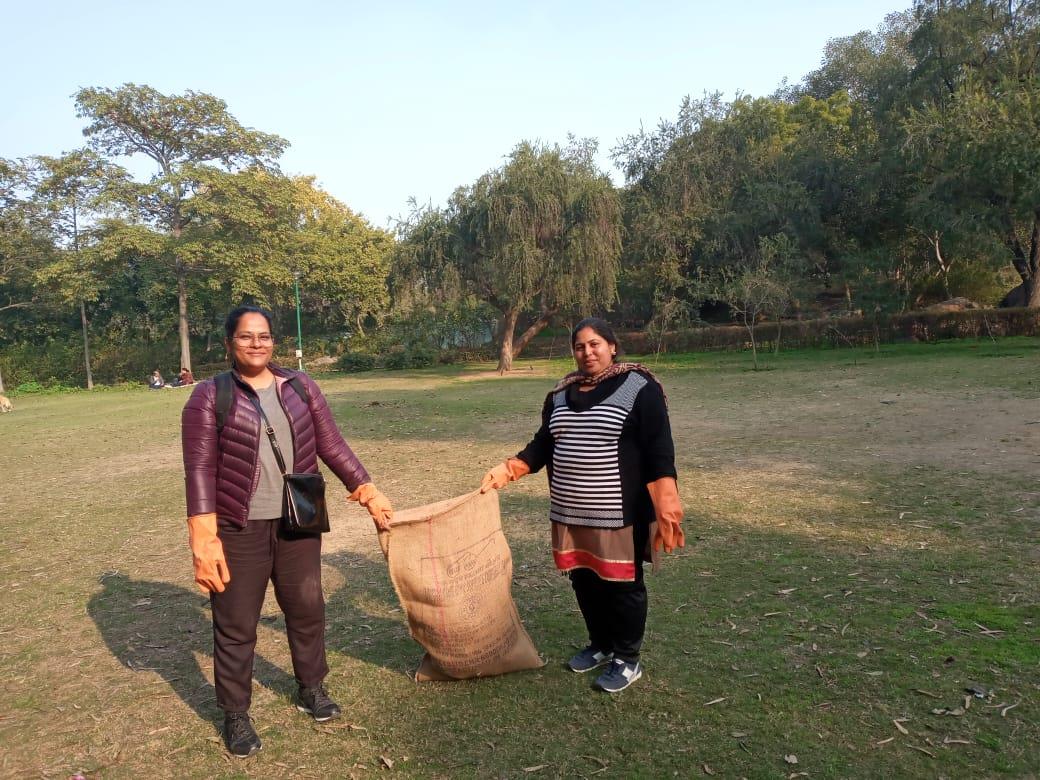



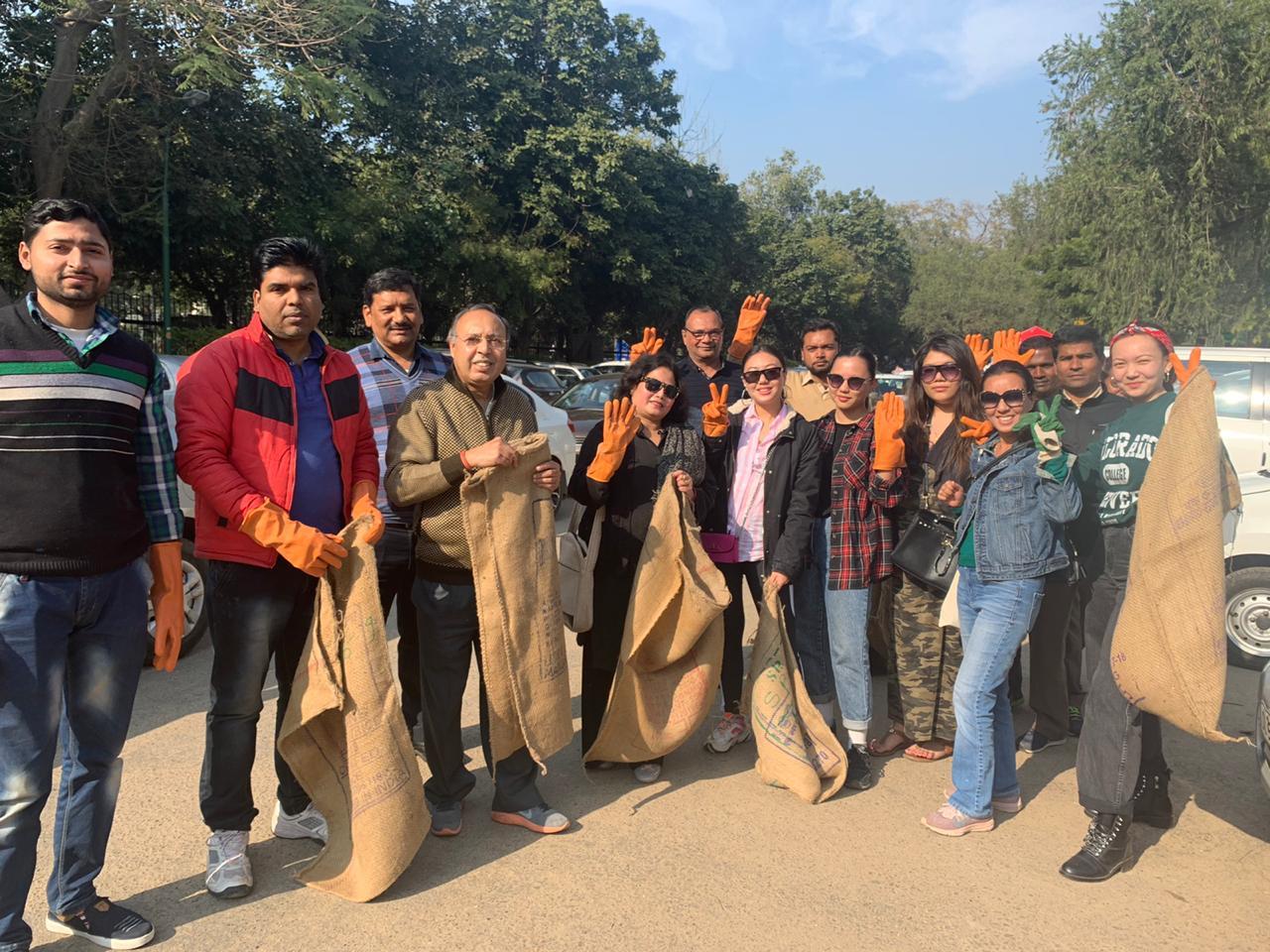
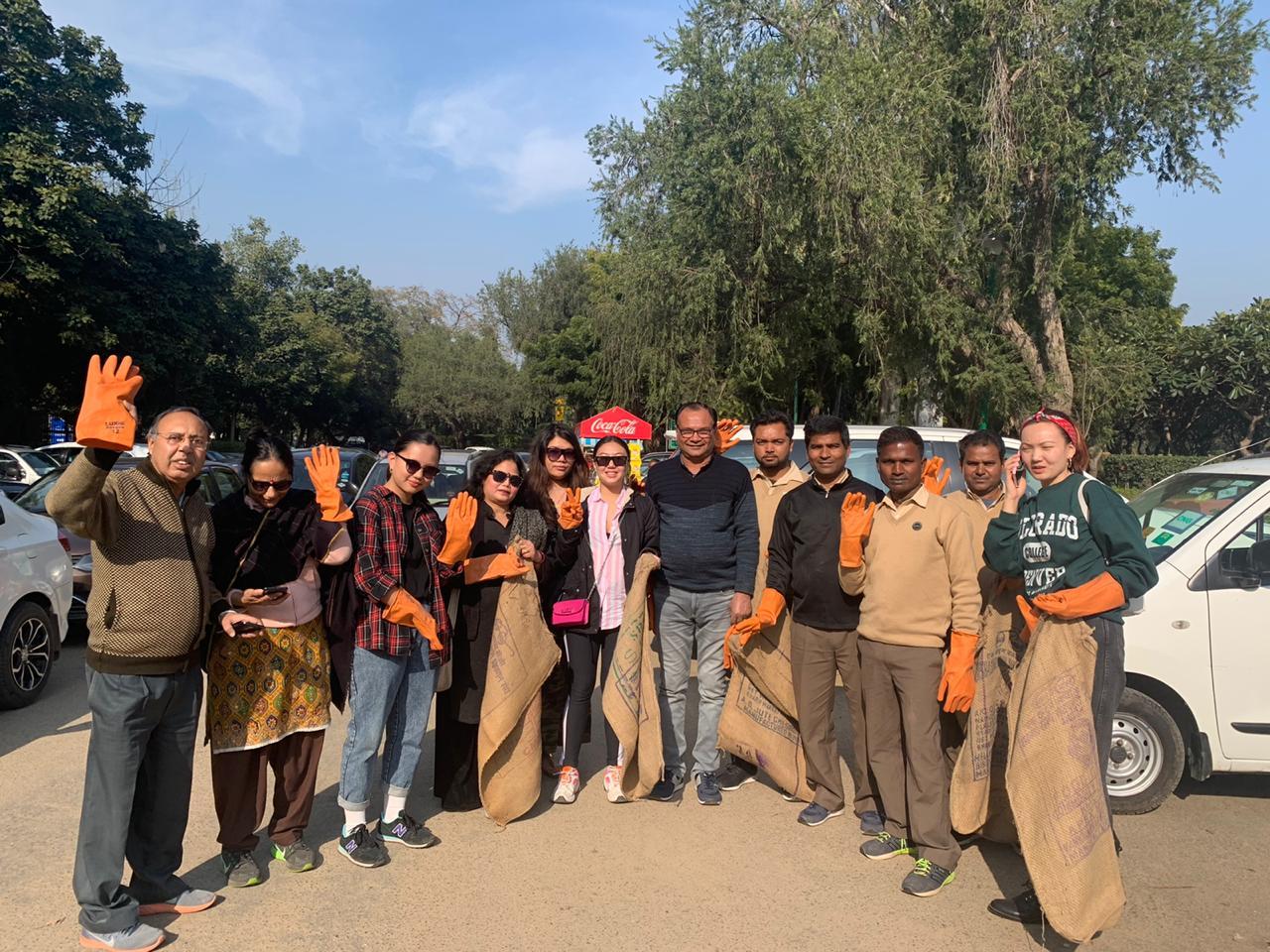
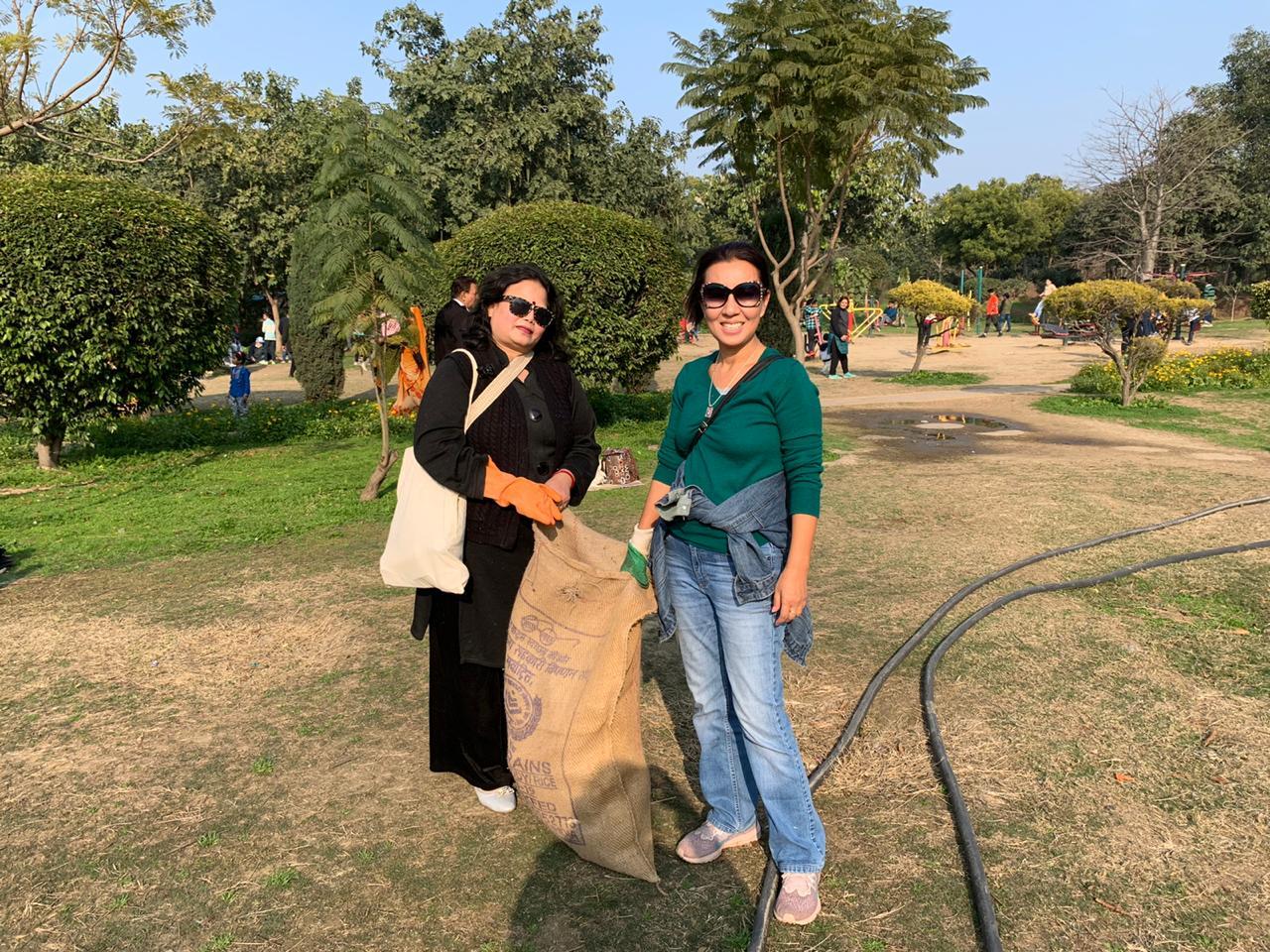
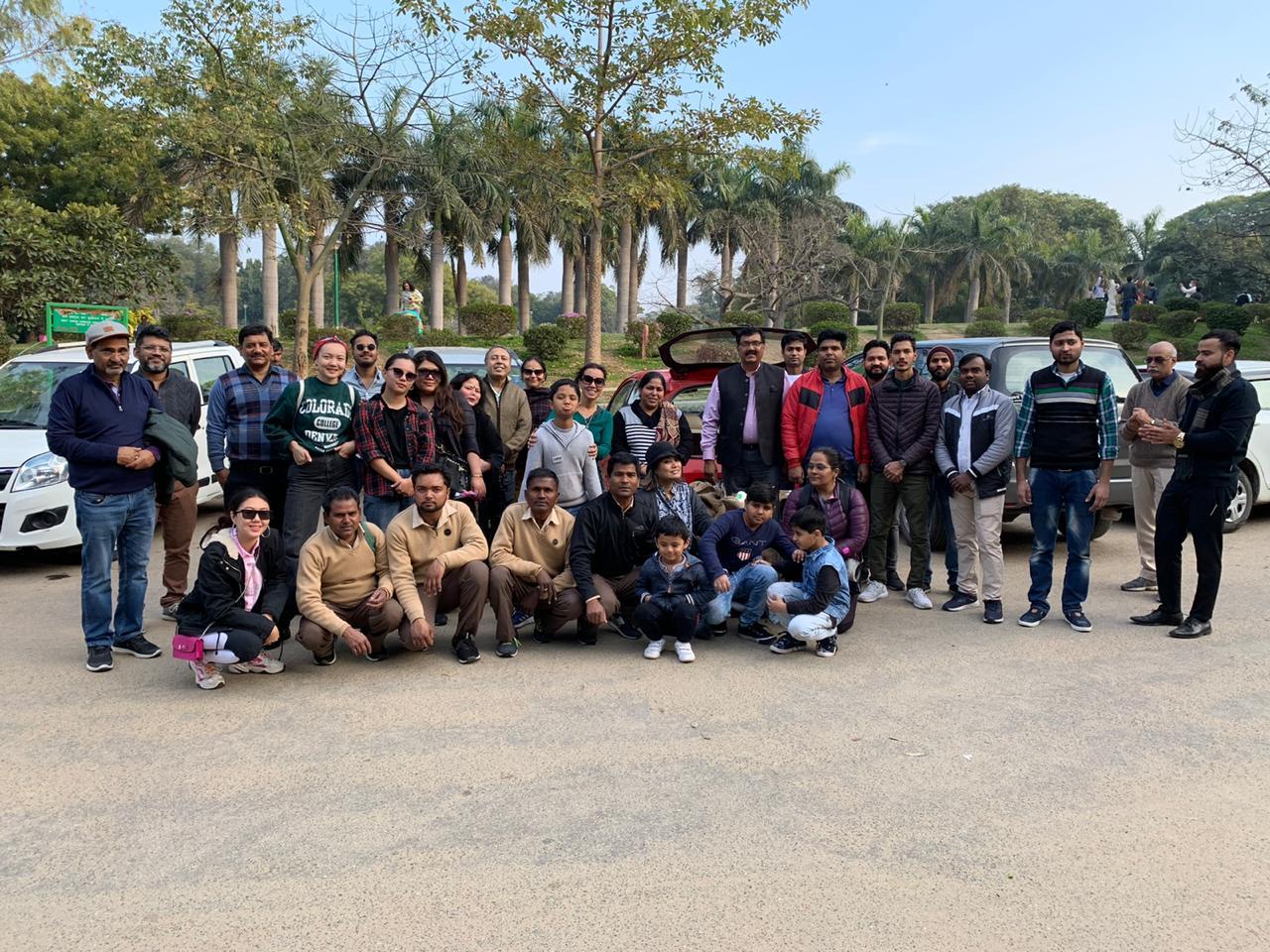
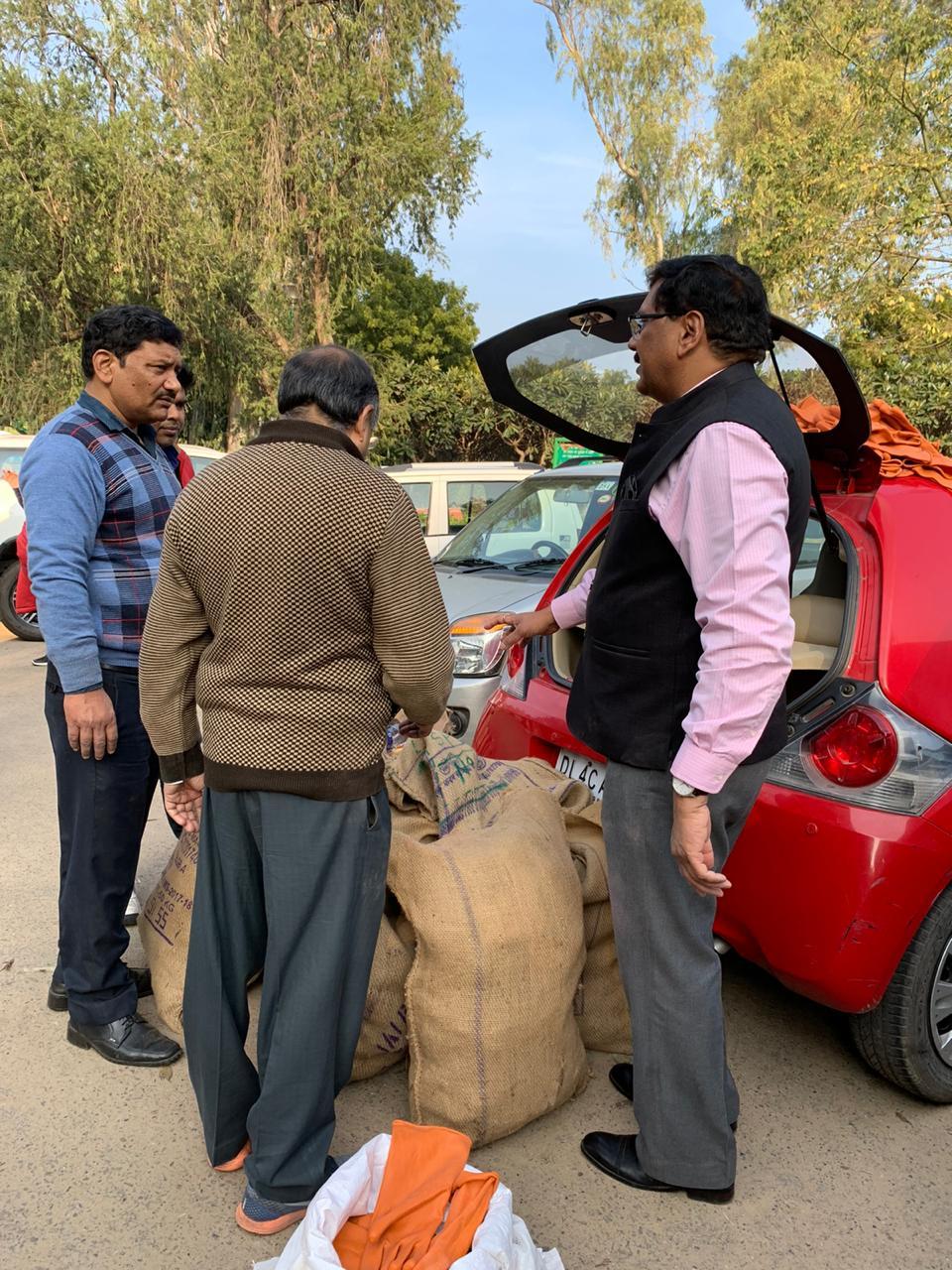
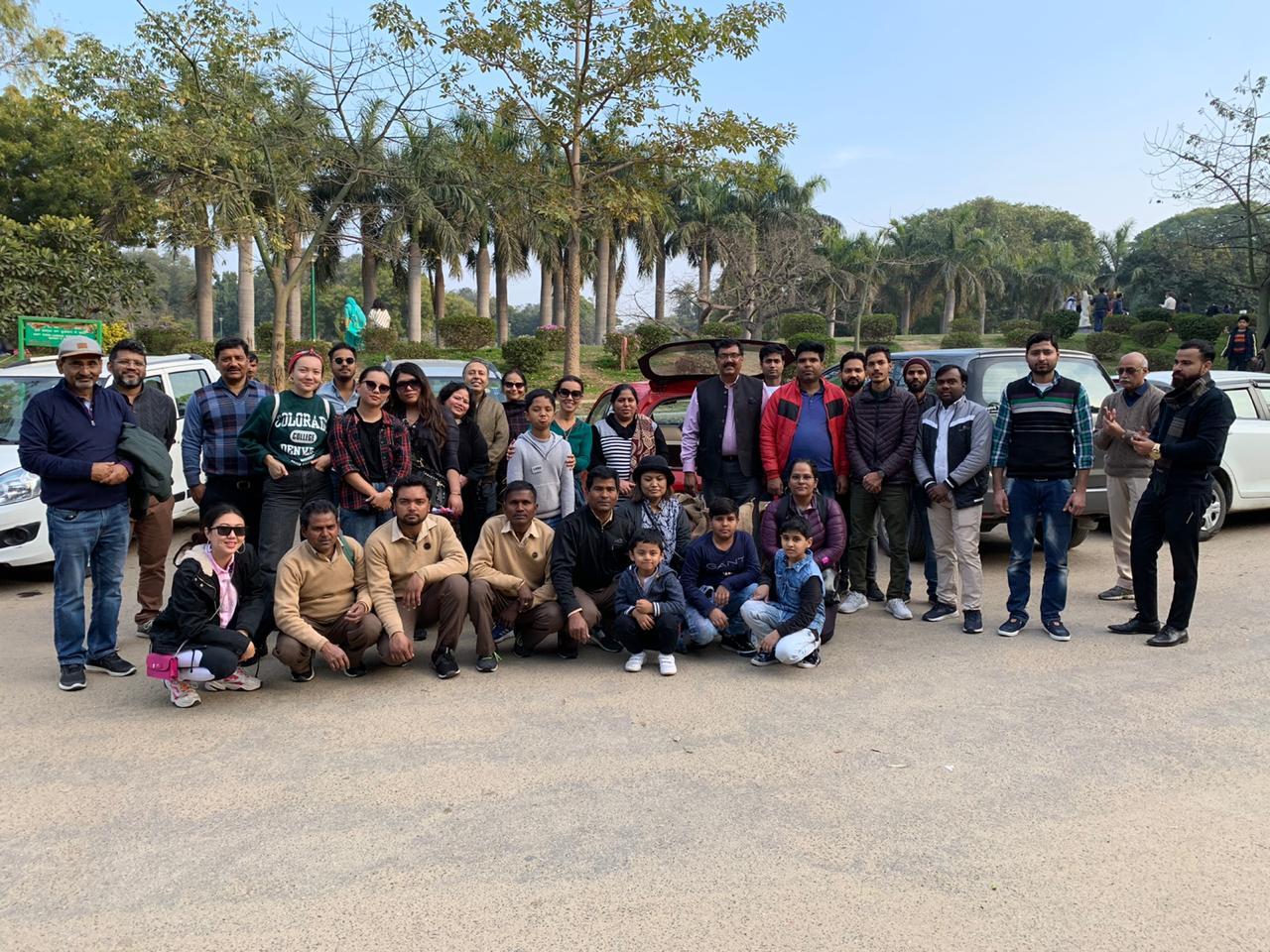
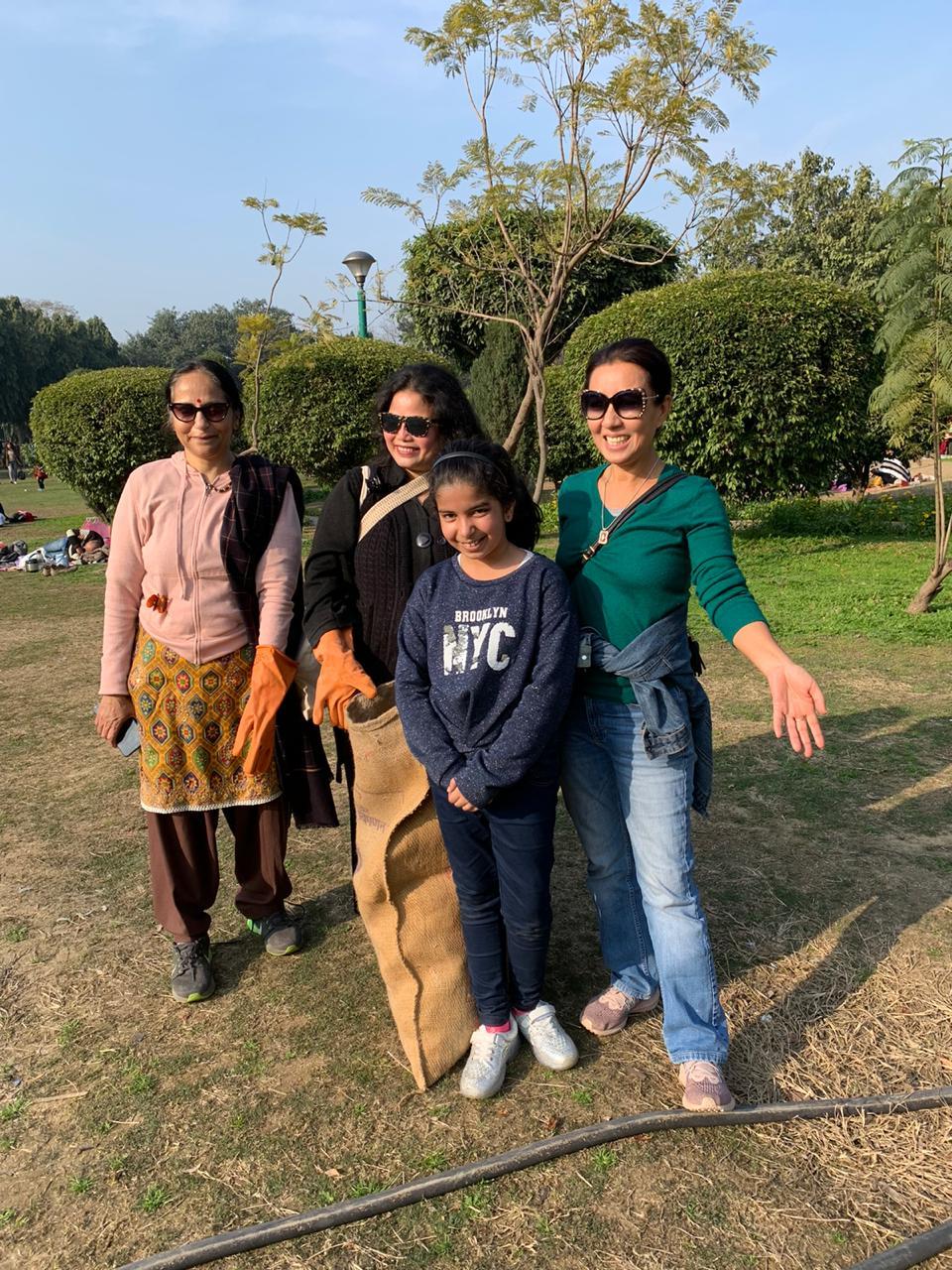
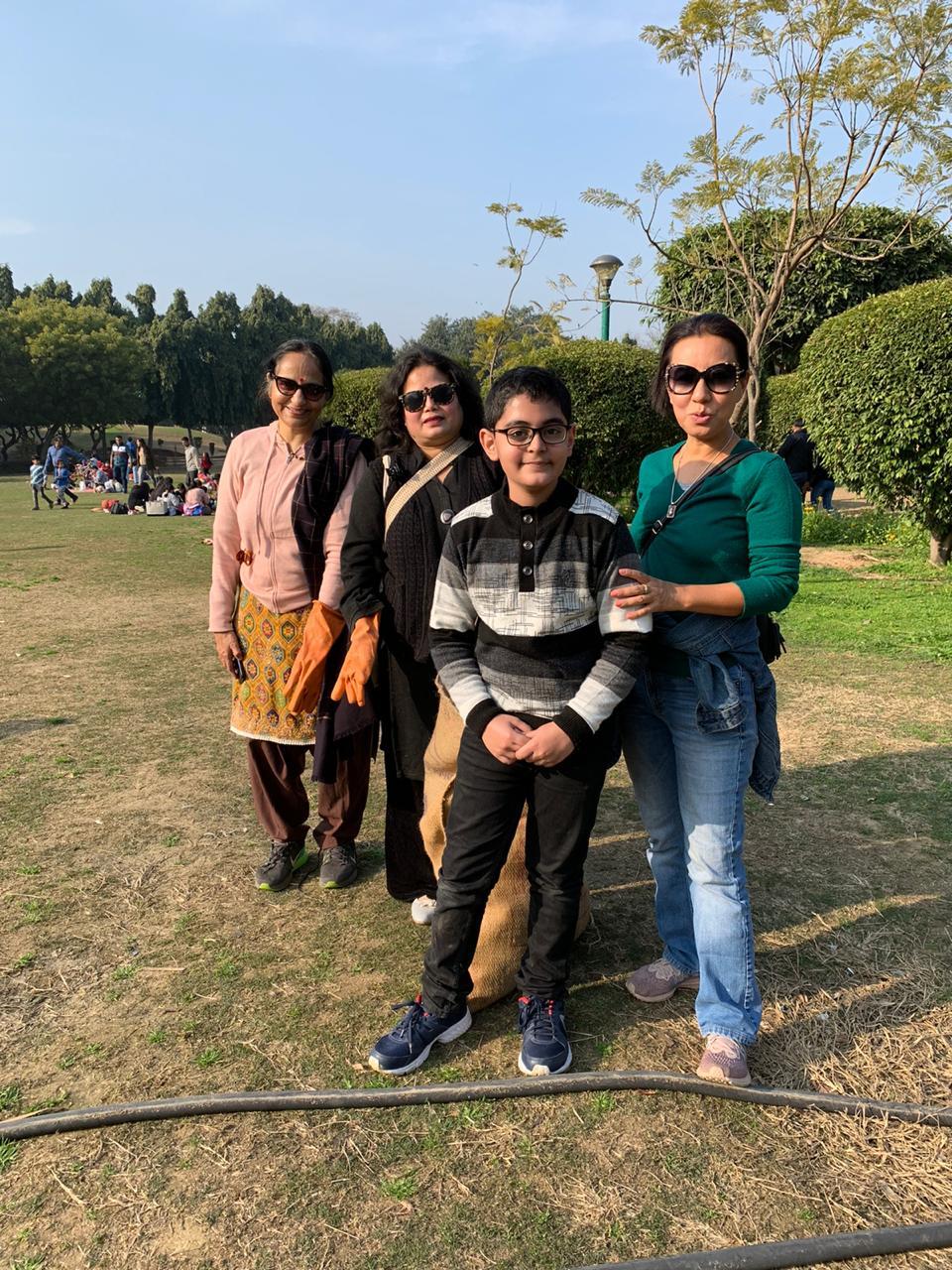

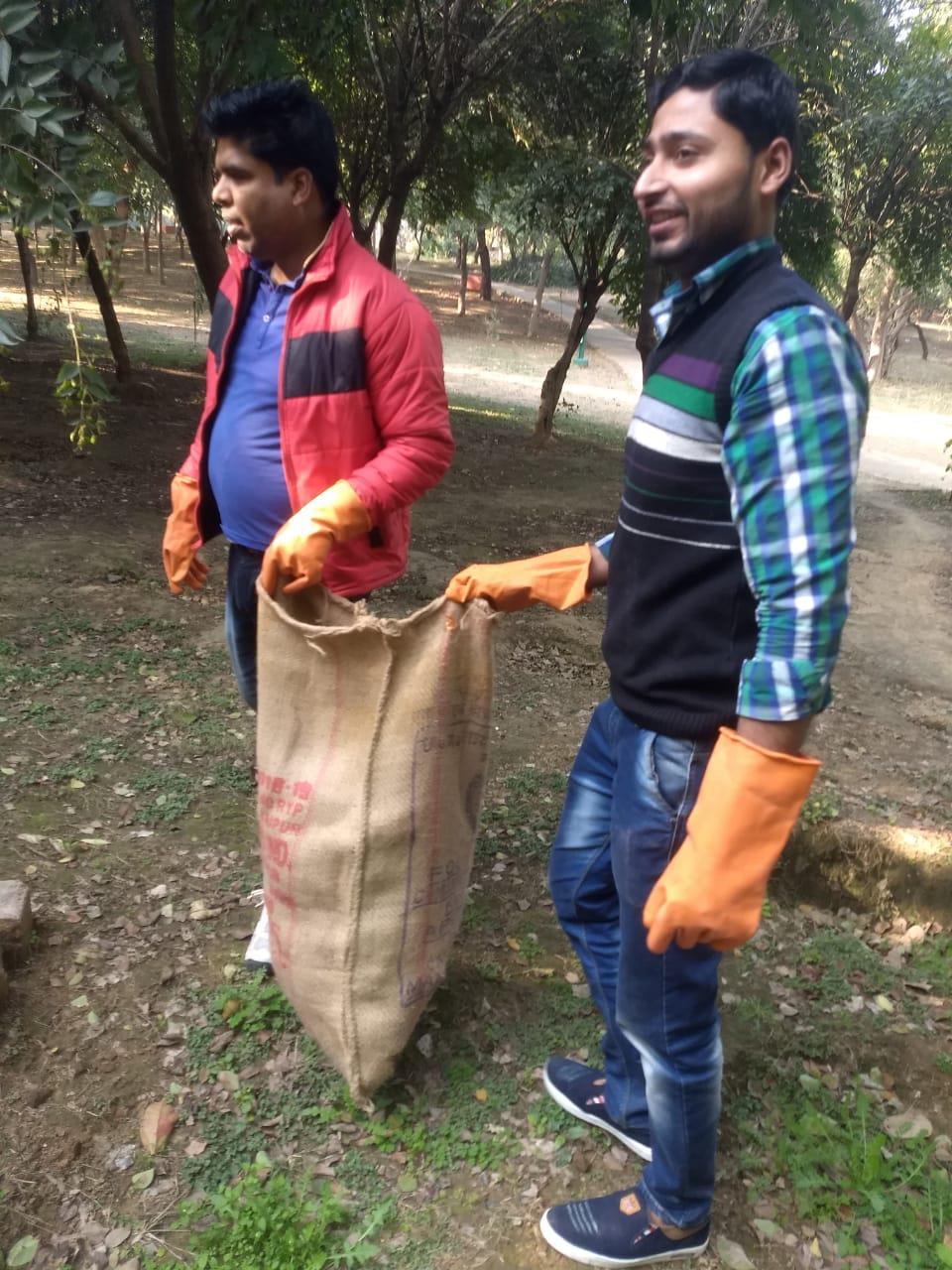
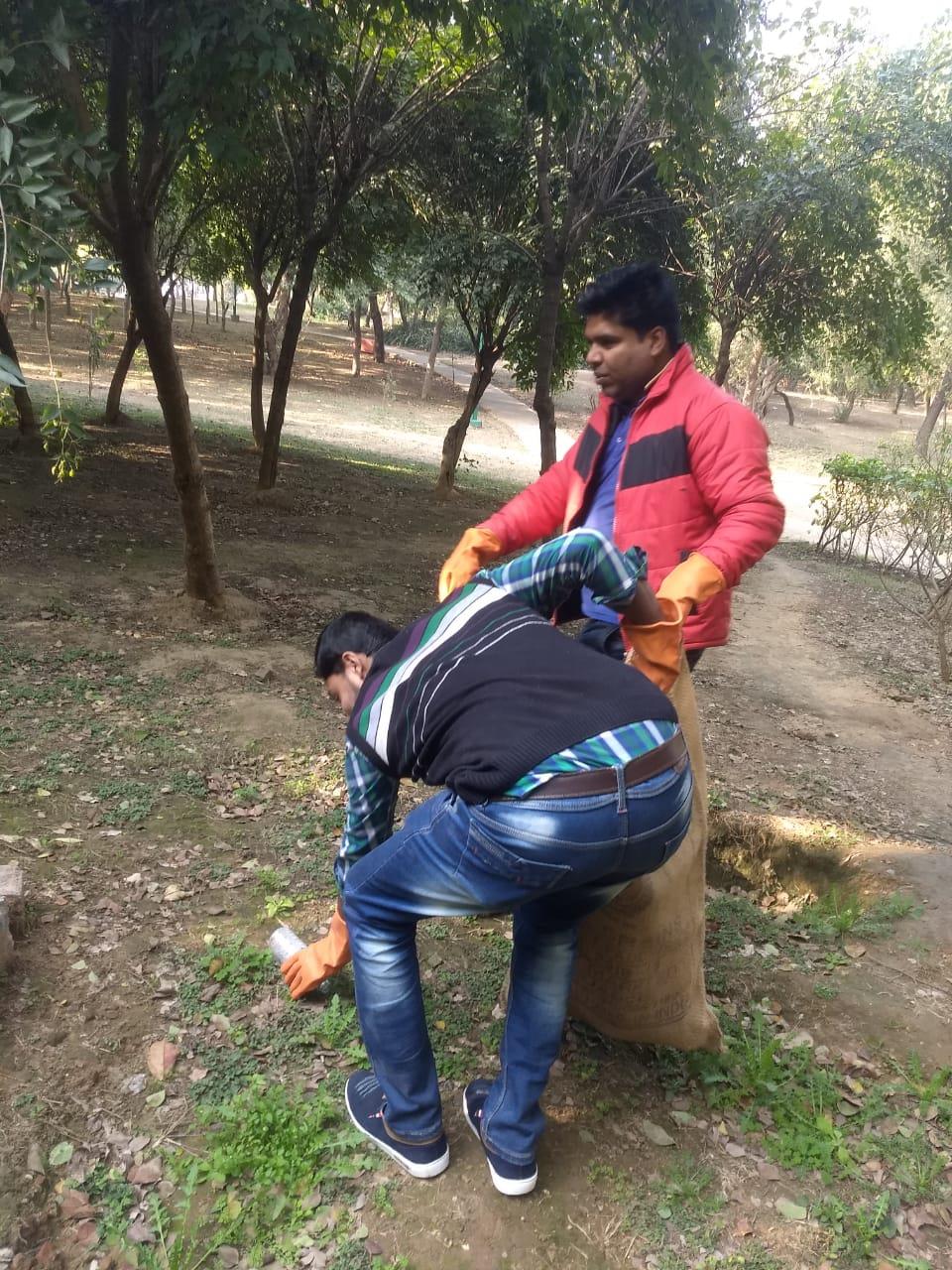
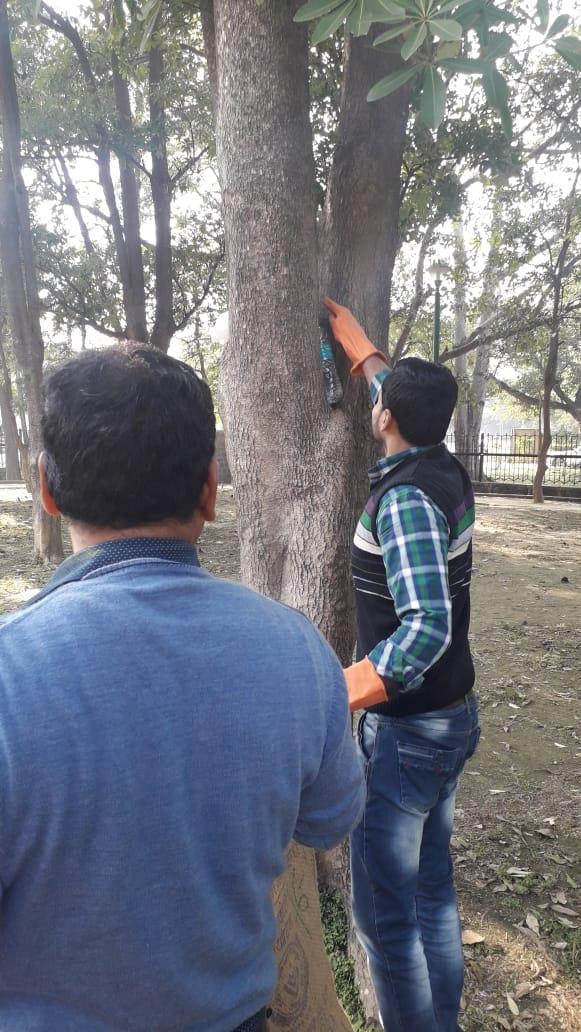
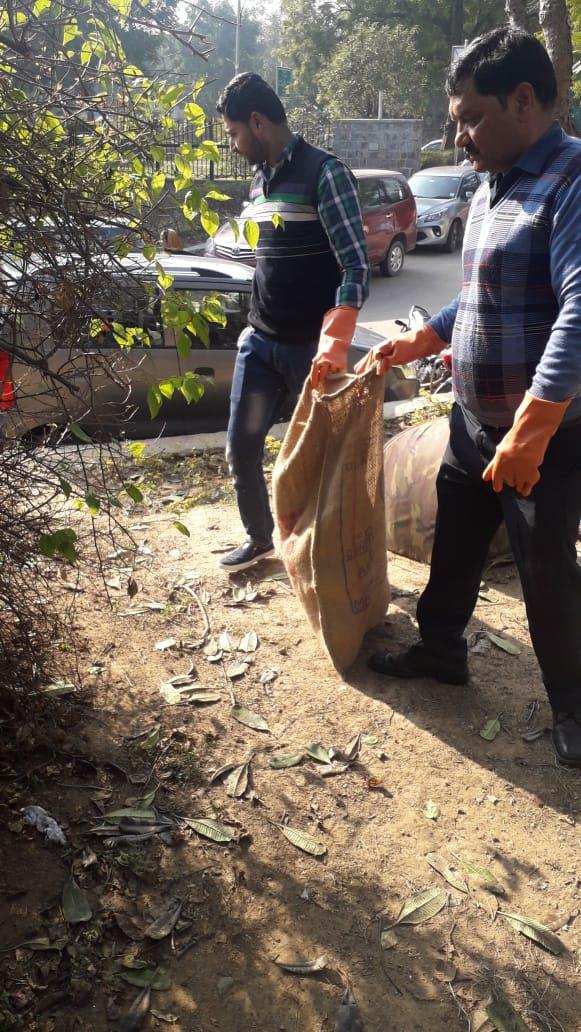
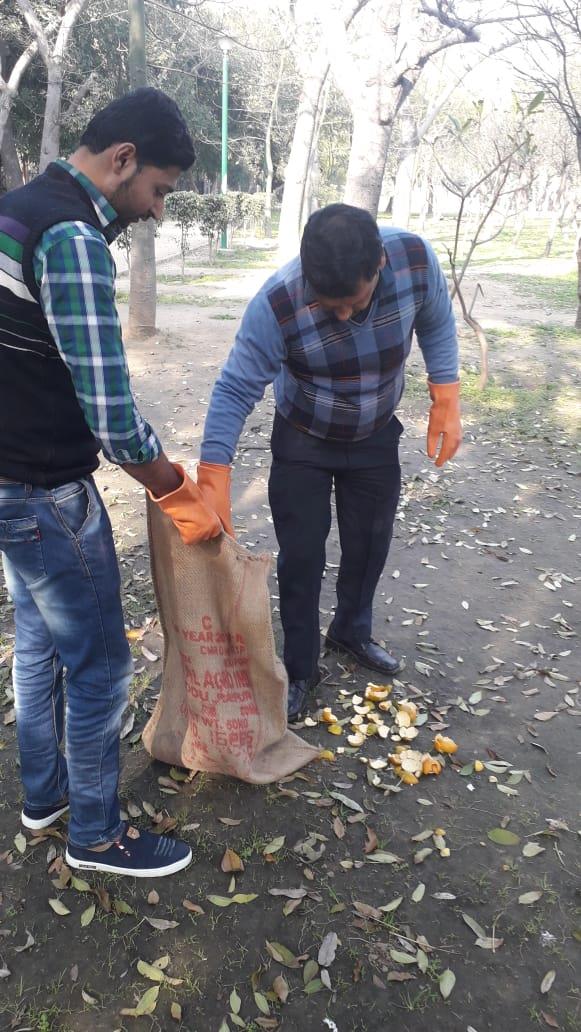
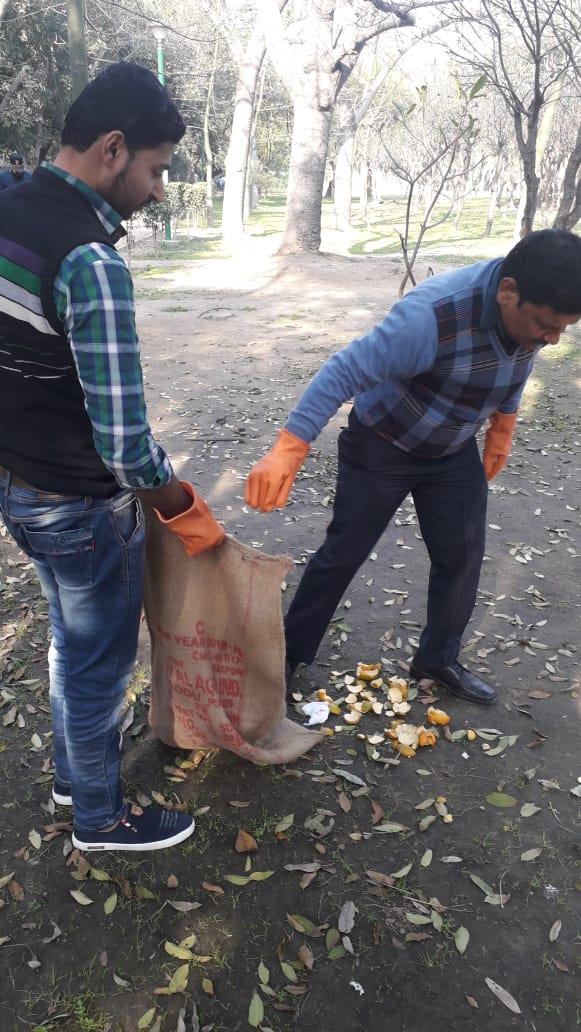
Registered Office:
Foundation forCampaign Against Plastic Pollution
66, Greenwoods Govt Officers Welfare Society
Phase 2 Sector Omega – 1
GREATER NOIDA
PIN-201310
District-Gautam Buddha Nagar
Uttar Pradesh, INDIA
Directors:
1. Anoop Kumar Srivastava2. Akash Shinghal
© 2019 Foundation for Campaign Against Plastic Pollution, Greater Noida, India


